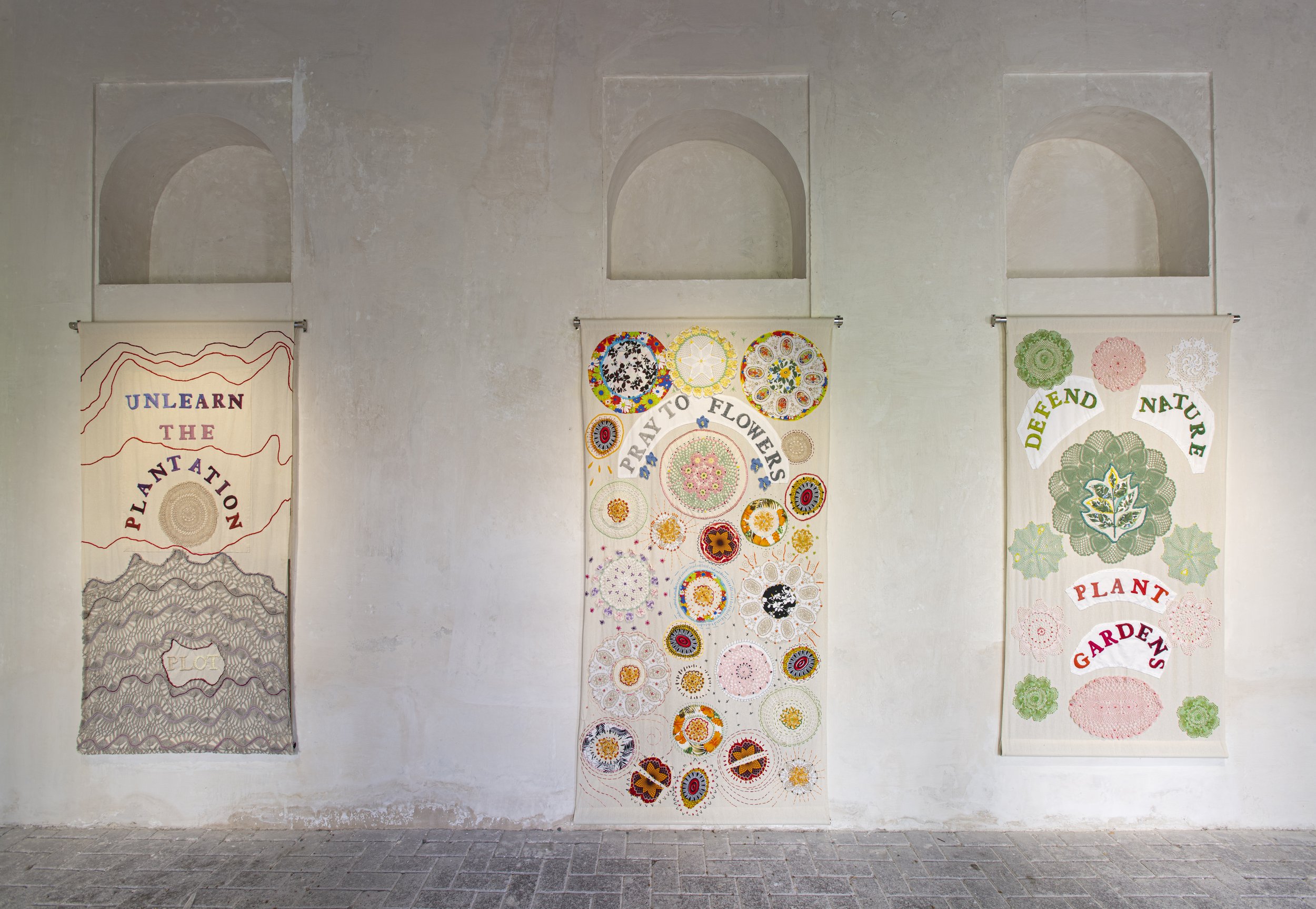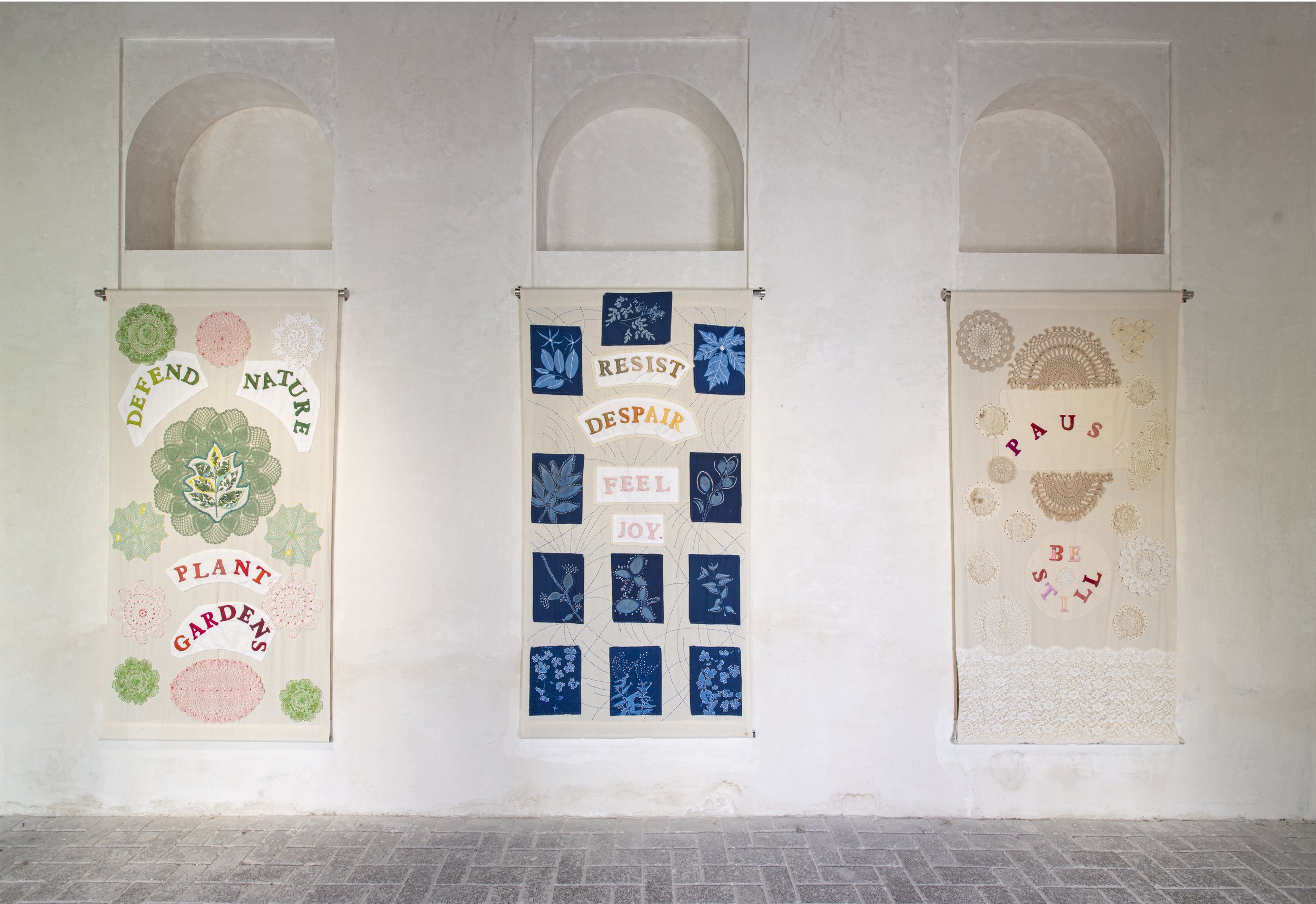Pray to Flowers – A Plot of Disalienation
Sharjah Biennale 2023
Opening from 7 February to 11 June 2023,
Sharjah Biennial 15 (SB15) is curated by Hoor Al Qasimi, Director of Sharjah Art Foundation.
Image courtesy of Sharjah Art Foundation
Photo: Shanavas Jamaluddin
Pray to Flowers – A Plot of Disalienation (2023), is a site-specific installation involving the steady transformation of the Bait Al Hurma [Women’s House in vernacular Emirati] courtyard into a sanctuary. The on-site living apothecary has been grown in collaboration with visual artist and researcher Yoeri Guépin as well as local gardeners and the Sharjah municipality, with a view towards longer-term sustainability beyond the biennial.
The attached interior space features a suite of embroidered works mirroring the densely layered garden, a soundtrack of spoken words, titled A Blessing for Disalienation; a seed repositary gifted to the public for growing gardens, a collection of reading material, and tea service for serving (bush) tea. A series of beds wind throughout the courtyard where the flowering and medicinal plants grown from seed are harvested for (bush) tea services for visitors.
The work references marginal lands given to enslaved people to sustain themselves, becoming sites of resistance within the plantation system. This plot thus acknowledges the regenerative potential of the biosphere and its inherent capacity for healing at the agricultural, botanical and psycho-spiritual levels. The work suggests future strategies for repair and thriving while investigating the role of botanicals and living plots as sites of refusal, counter-knowledge, community and healing.
Press:
Thank you to Pulse95, Sharjah's 1st English radio station and big gratitude to their generous interviewer, Aisha AlMaazmi, for inviting me to be a part of her ‘Eyes On’ radio programme. Aisha’s generous questions kept me on my toes!
We chatted about colonialism and post-colonialism; the word ‘plot’ as both a noun and a verb; the ways in which the colonial project fostered alienation; the selection of plants for the living apothecary; the creation of a safe space where all people are invited to enter the space, slow down and take a breath; the sound work offering blessings for everyone including Sharjah’s large migrant labour force; my work with a sewing circle of women in Barbados to produce the embroidered drawings; the seed depository, bush teas and much much more.
Thank you to Joseph dela Cerna from the Sharjah Art Foundation comms team for accompanying me and facilitating the recording.
Biennial Bytes , Episode 9: Annalee Davis - Planting and Recovering
How can gardens become spaces for healing and community? Can plantations become sites for challenging exploitation and the vestiges of colonialism?
To find out, listen to Annalee Davis in conversation with SB15 curator Hoor Al Qasimi.
At Sharjah, Davis grew a medicinal garden made using plants, herbal knowledge and gardening practices from around the world. The work, called Pray to Flowers — A Plot of Disalienation (2023) and made in collaboration with artist and gardener Yoeri Guépin, critiques colonial cultivation as well as the misuse of land due to globalisation.
Pray to Flowers
Thank you to the women who generously offered their sewing skills: Holly Bynoe, Cheryl Cox, Barbara Davis, Maureen Davis, Vanessa Delany, Rosalind Harris, Serena Jones, Marion Lashley, Marie-Claire Lyder, Jessica Marshall, Rosa Rúiz Gimenez, Rhea Small, and Nadja WIllis.
Unlearn the Plantation; Pray to Flowers; Defend Nature - Plant Gardens; Resist Despair - Feel Joy; Pause Be Still; (Bush) Tea and Bless Up!
2022-2023
From ‘Pray to Flowers – A Plot of Disalienation’, 2022
Crochet, applique, and embroidery on domestic cotton
4 panels @ 175.26 x 88.3 cm, 1 panel @ 200 x 101 cm, 1 panel @ 28 x 48 cm, 1 panel @ 147 x 22.8 cm
Courtesy of the artist
This suite of embroidered panels acknowledges British sewing traditions that Barbadian women inherited over several centuries. Practiced across races and classes, their habitual utilization of the needle and thread instilled notions of what it meant to be feminine. Pre-approved imagery, stitches, and colours replicated across samplers were part and parcel of the training of middle- and upper-class women into becoming submissive housewives who abided by the church’s teachings and moral codes of respectability.
Conversely, Pray to Flowers disregards the restricted range of carefully taught stitches, colour combinations, and sanctioned subject matter. Rather, it presents a suite of embroidered, appliqued works interweaving crochet, applique, and embroidery to address more indelicate discourse such as the impact of mono-crop farming and the plantation on today’s climate emergency. An amalgamation of time-honoured stitches with fabricated ones, they intermingle 100-year-old cutwork embroidery with contemporary so-called ‘African’ print fabrics worn during Barbados’ Crop Over festival. Merging pale pink crochet pieces and machine-made lace gifted to me, this mash-up of fabrics, threads, and traditions acknowledges the creolization inherent in the formation of post-independent Barbados.
Instead of producing decorative works for the living room, once the prescribed domain of women, or adorning the surfaces of dressing tables, these tapestries link the plantation and the sixth extinction. Cyanotypes of local botanicals growing in my garden acknowledge flora native to this place rather than the bluebells and cockleshells found in the embroidered tablecloths of my mother’s generation, fashioned on prescribed patterns they were encouraged to fabricate. Satin stitch is employed to emphasize a sequence of phrases, advocating for example the worship of flowers, and the need to unlearn the plantation or defend nature.
Collectively, the works recognize the inherent value in the bio-diverse plots nurtured by enslaved Barbadian society, praised for their use value, although situated within the larger capitalist machinery of the plantation. In their making, these works appreciate the gathering of women who joined me in their slow construction, thread by thread, words by many words, and the inherent need to commemorate slow cultural work communally.
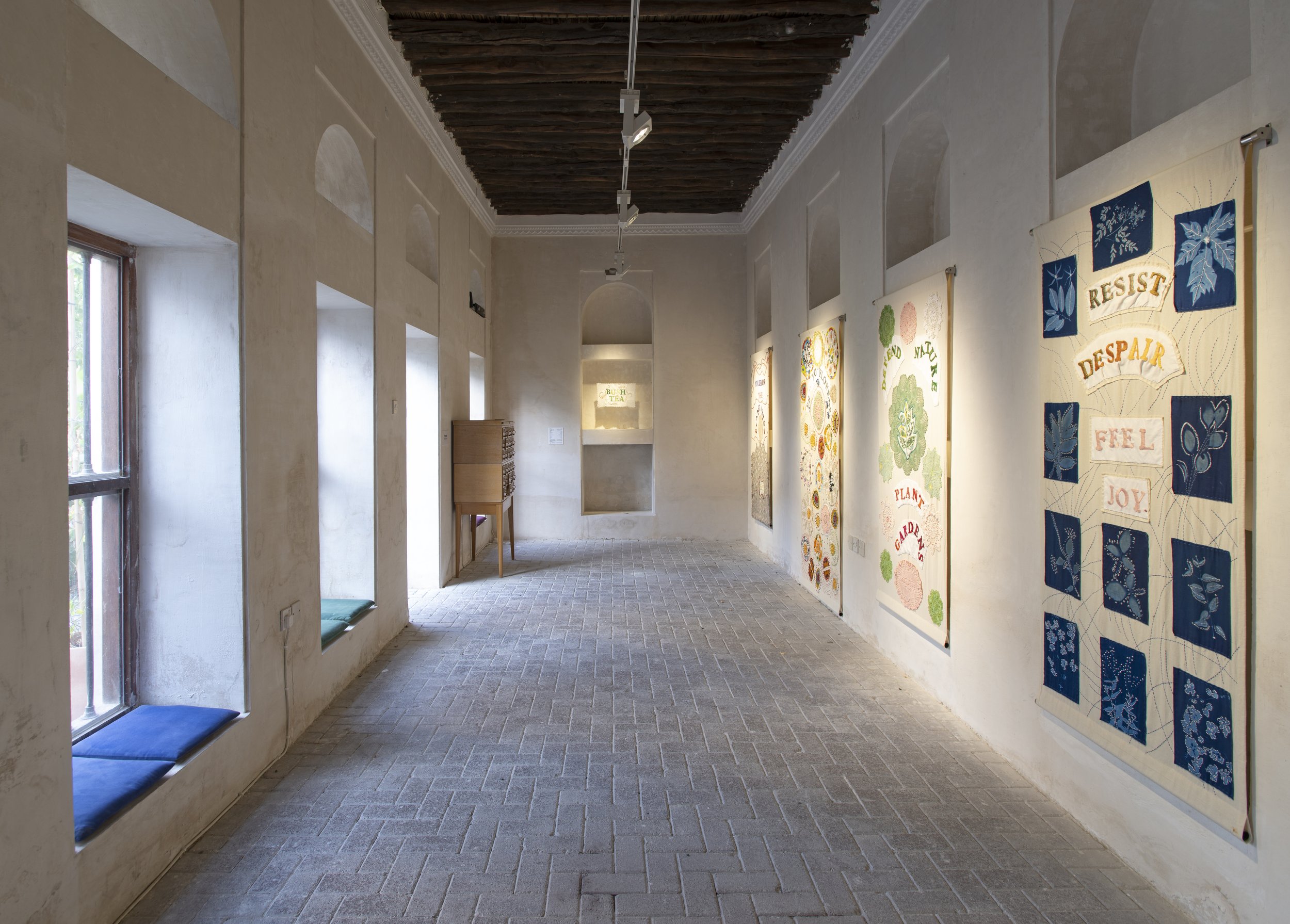
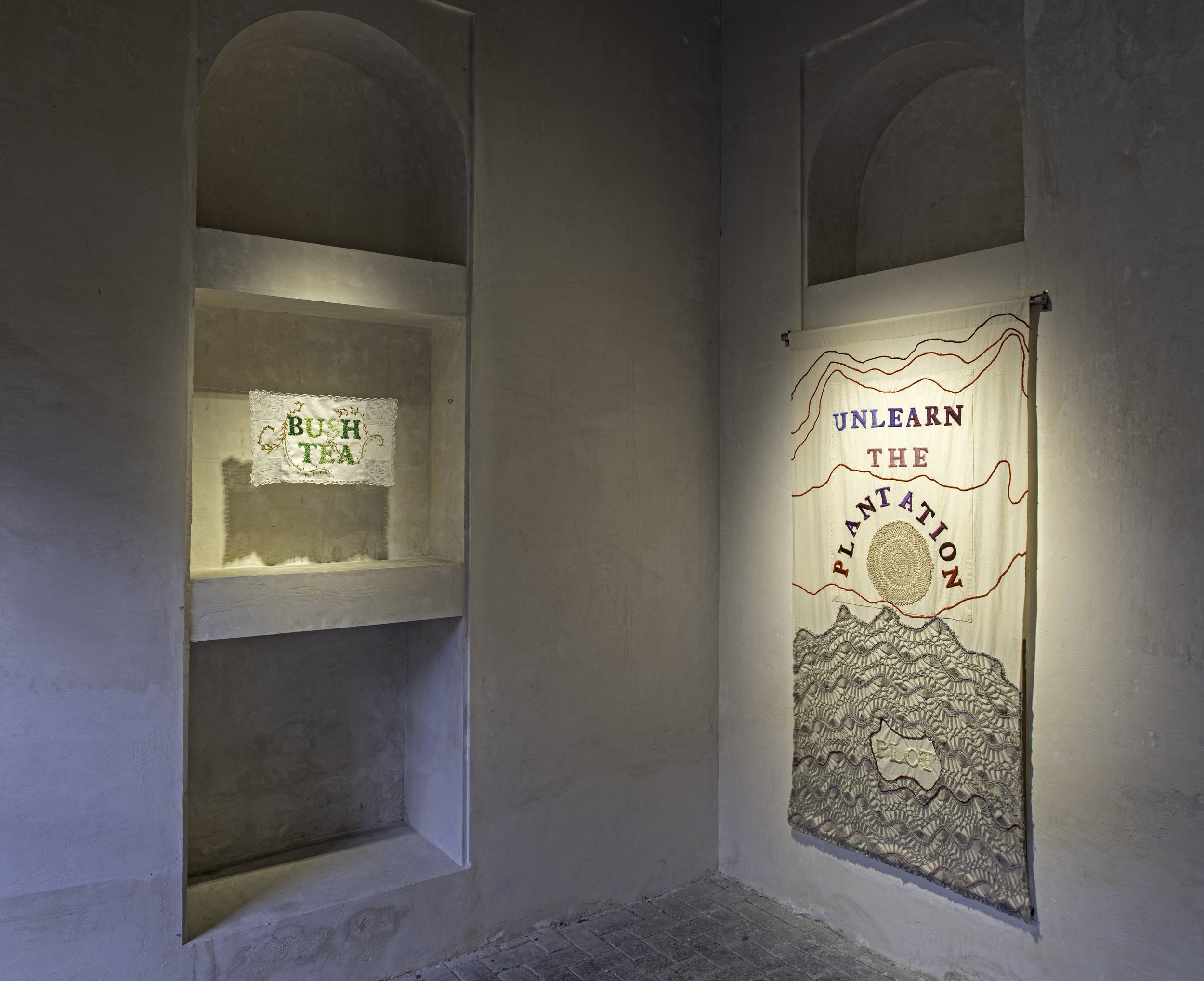
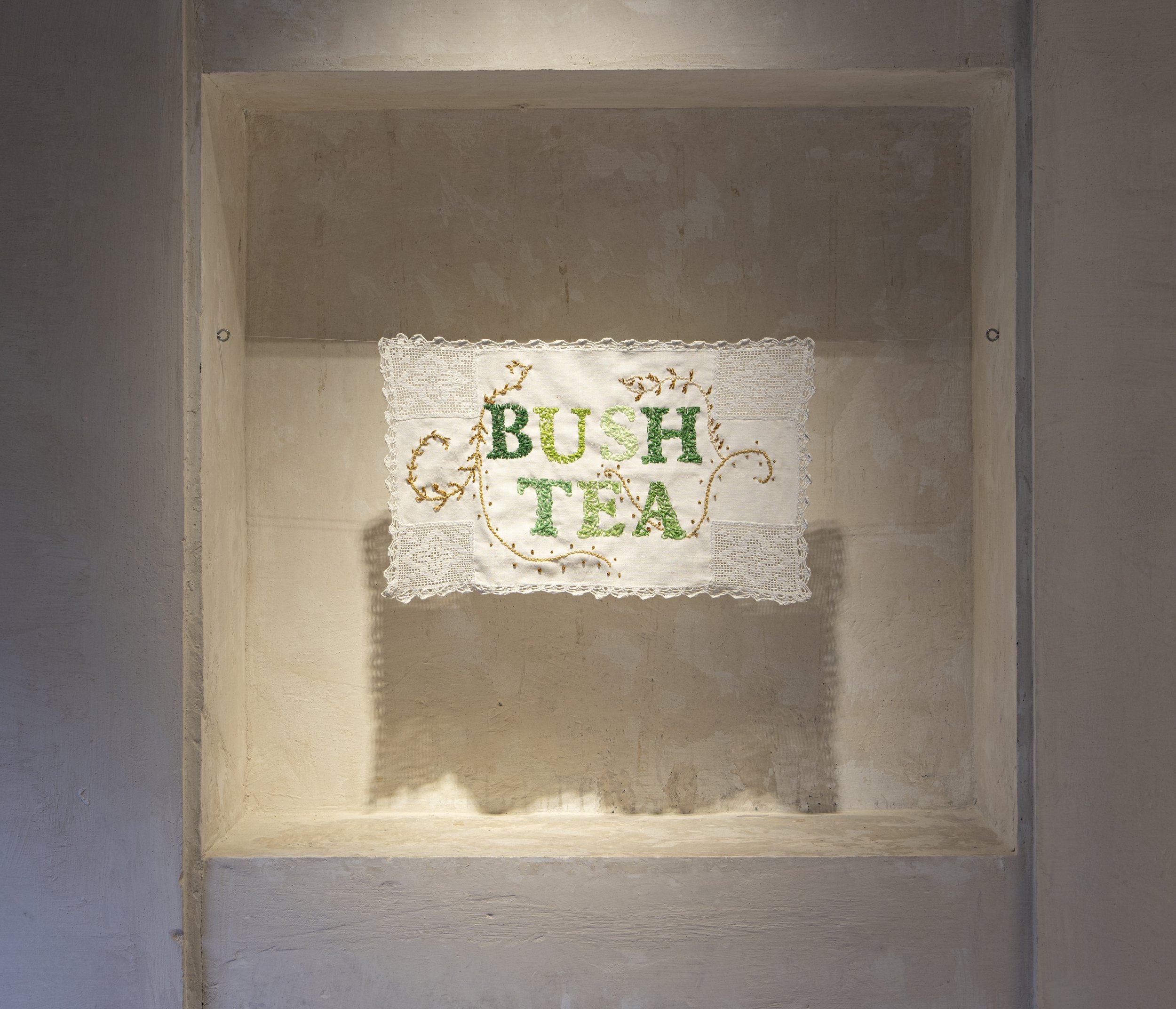
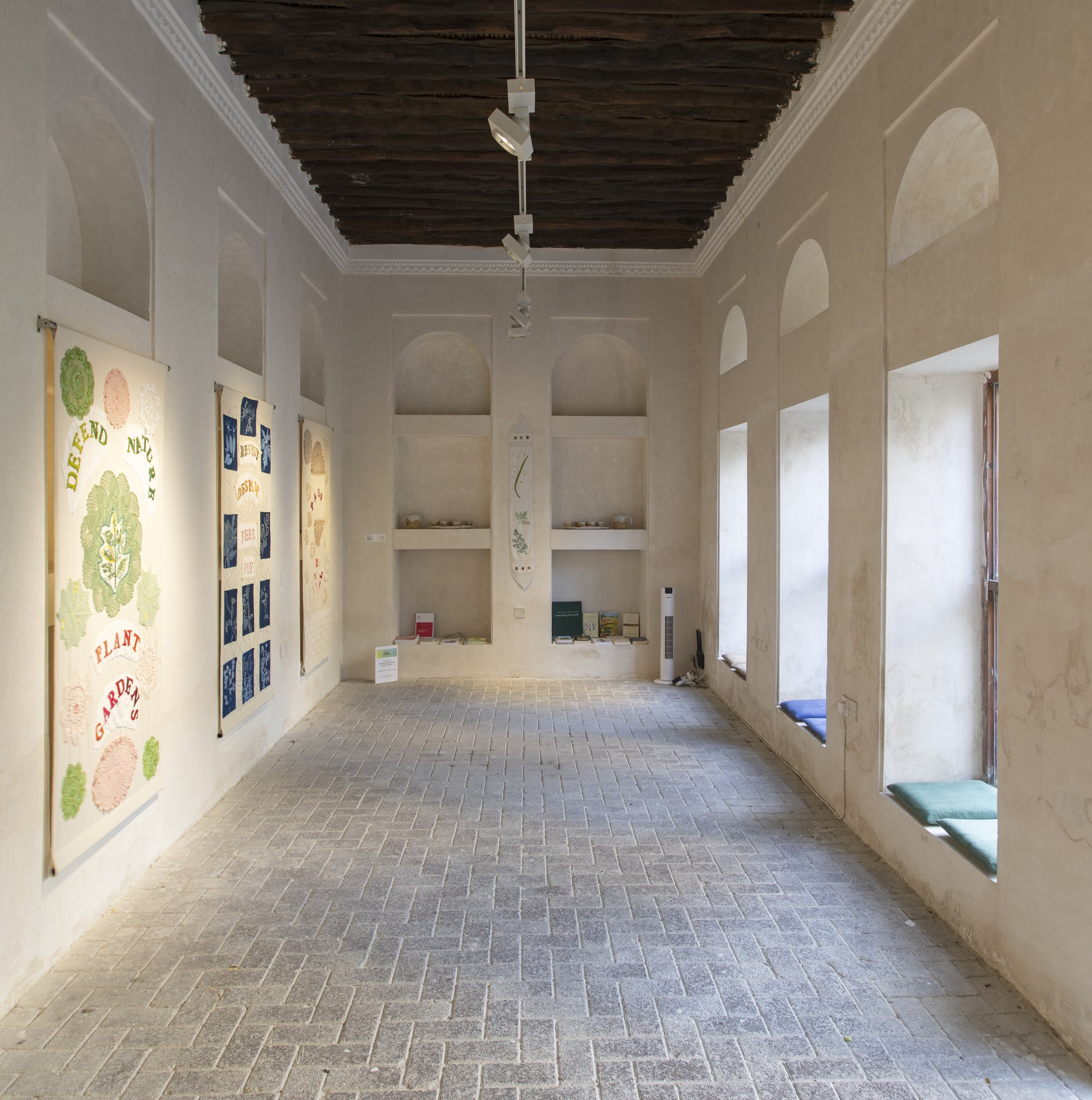
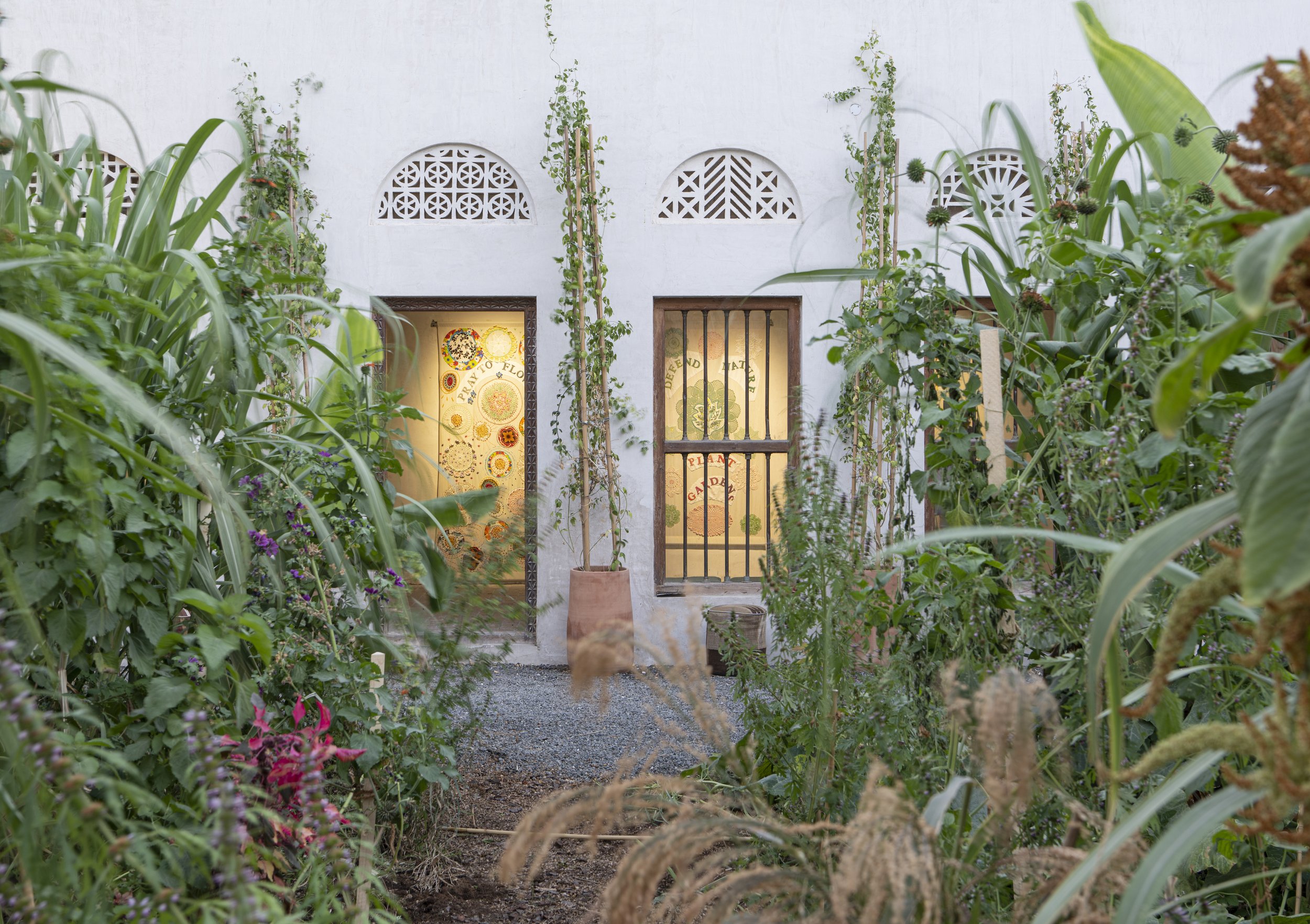
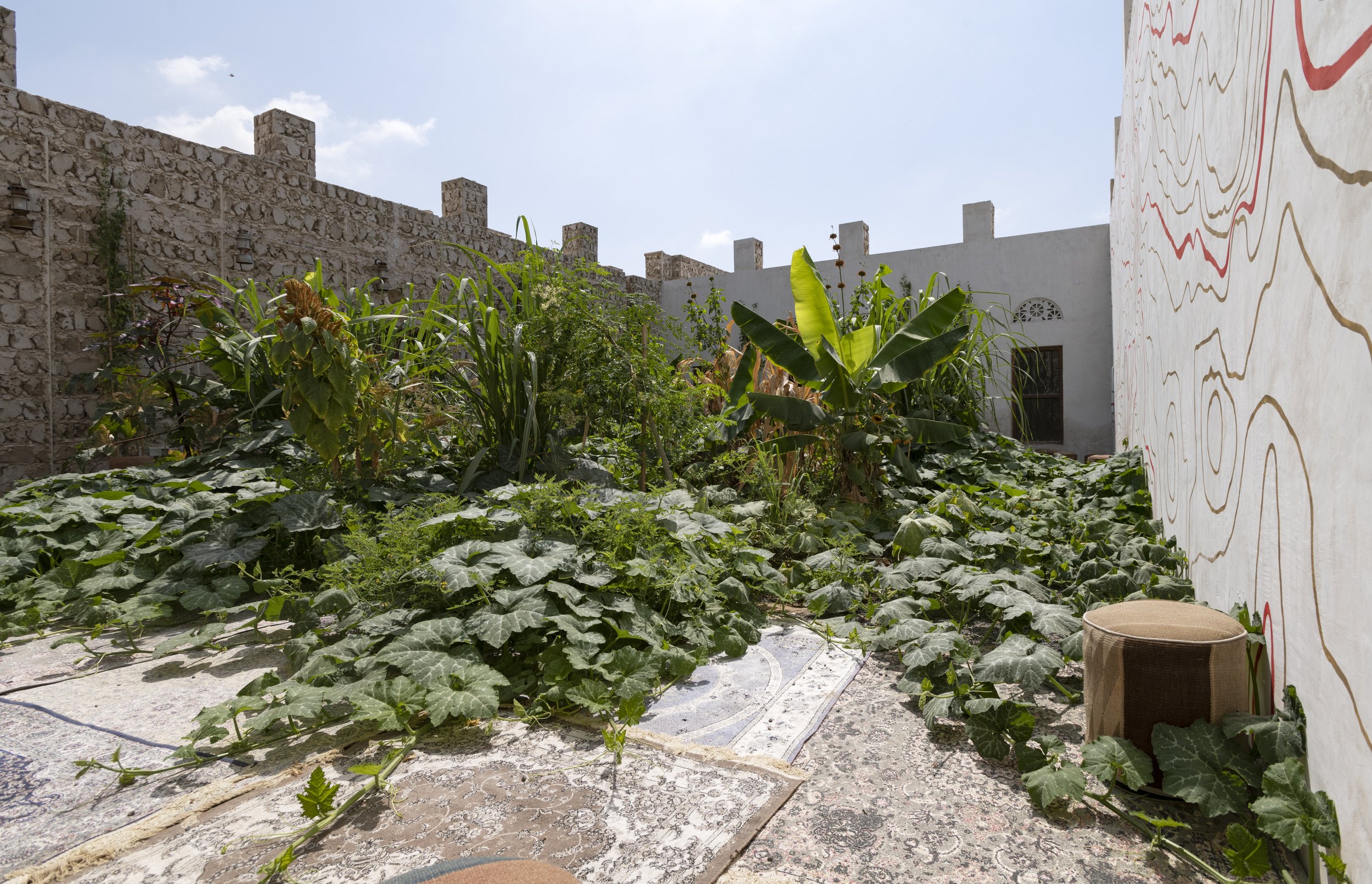
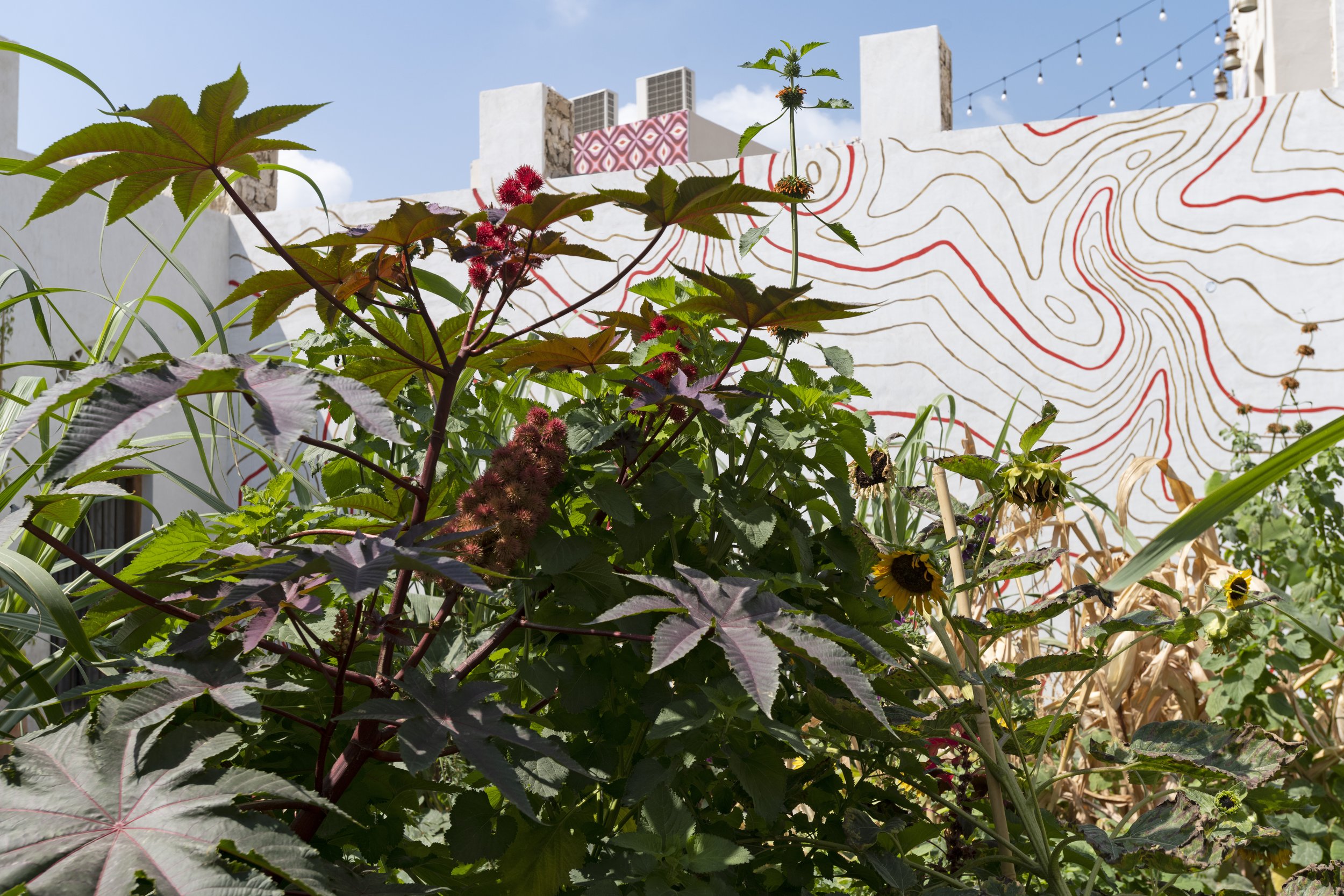
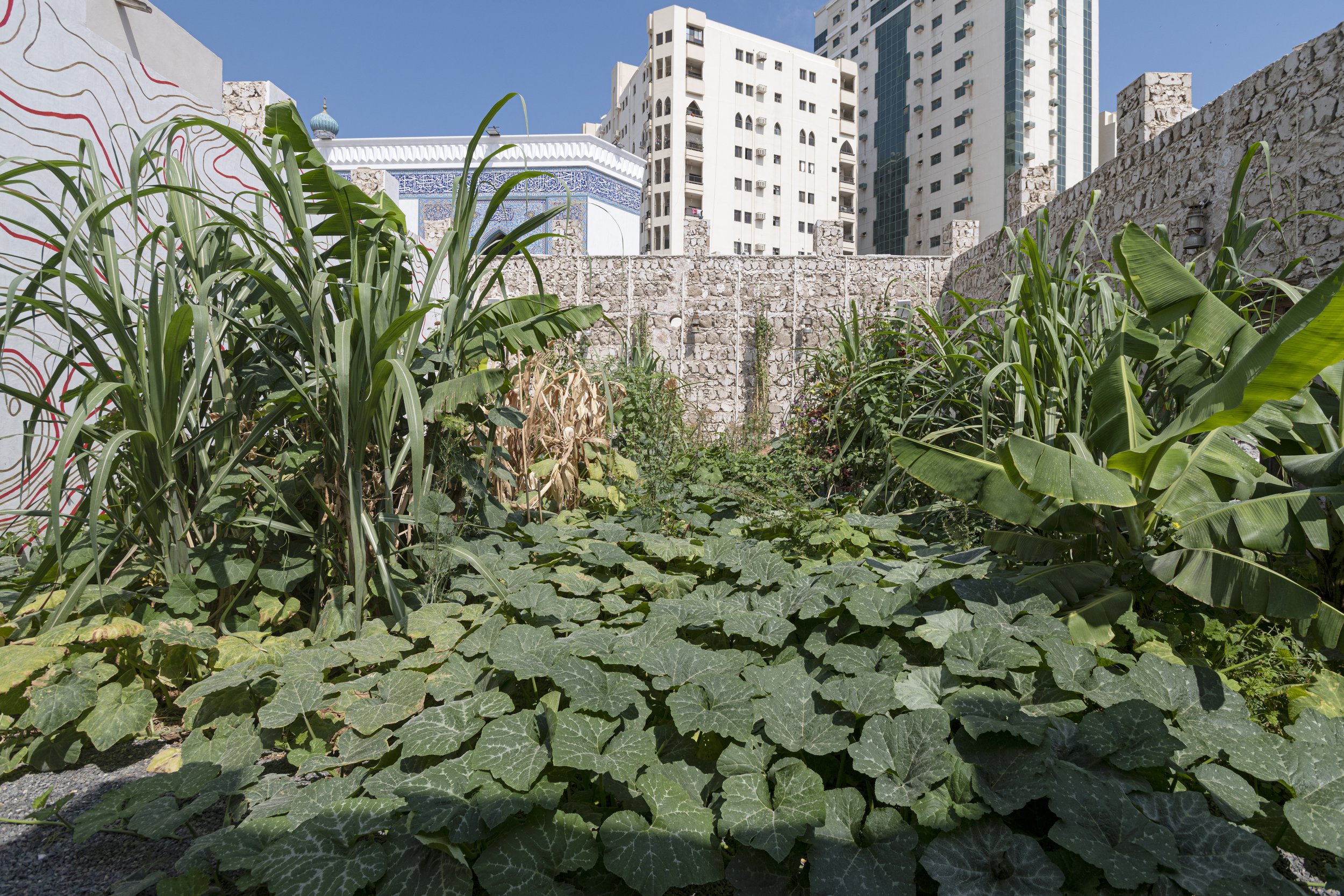
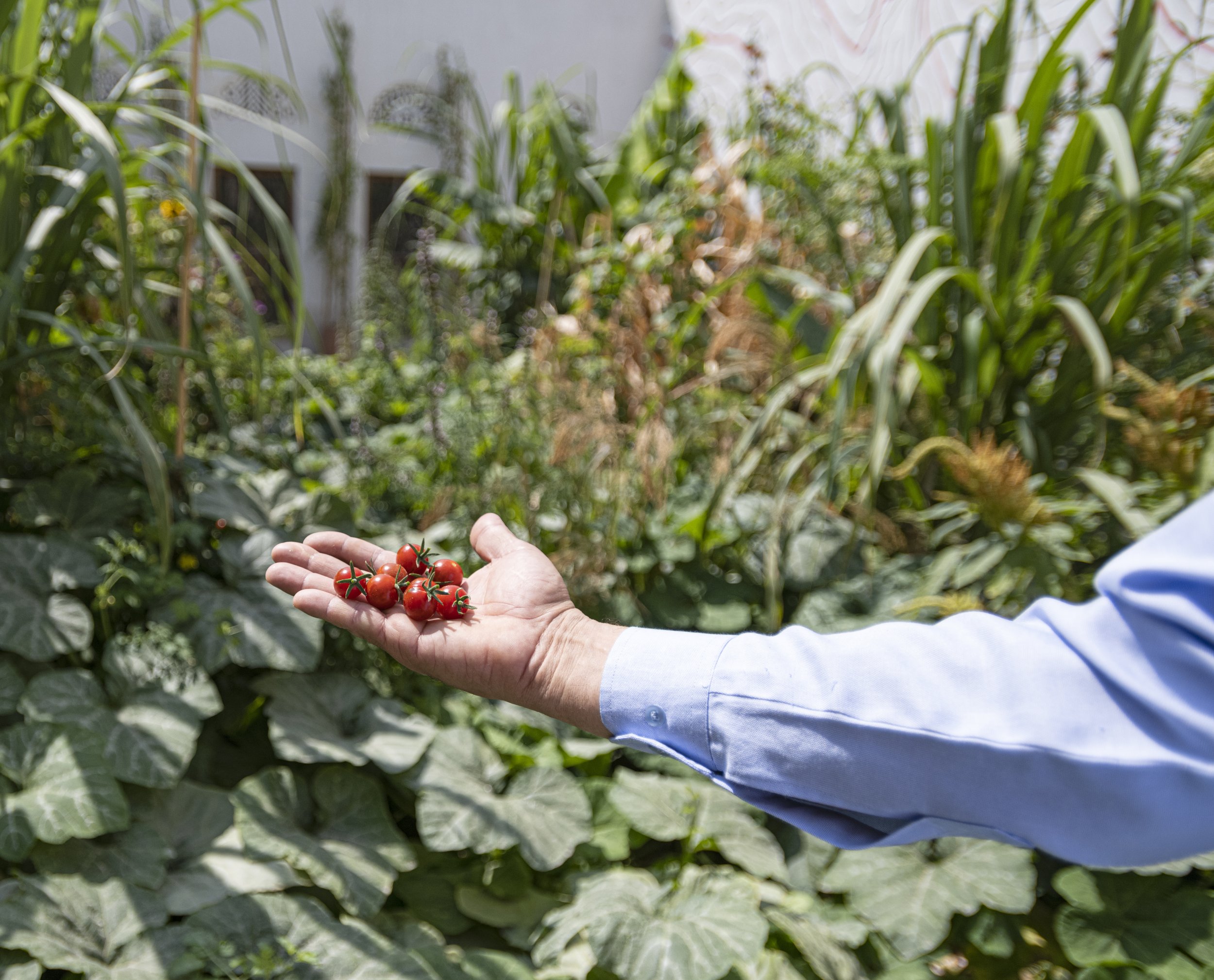
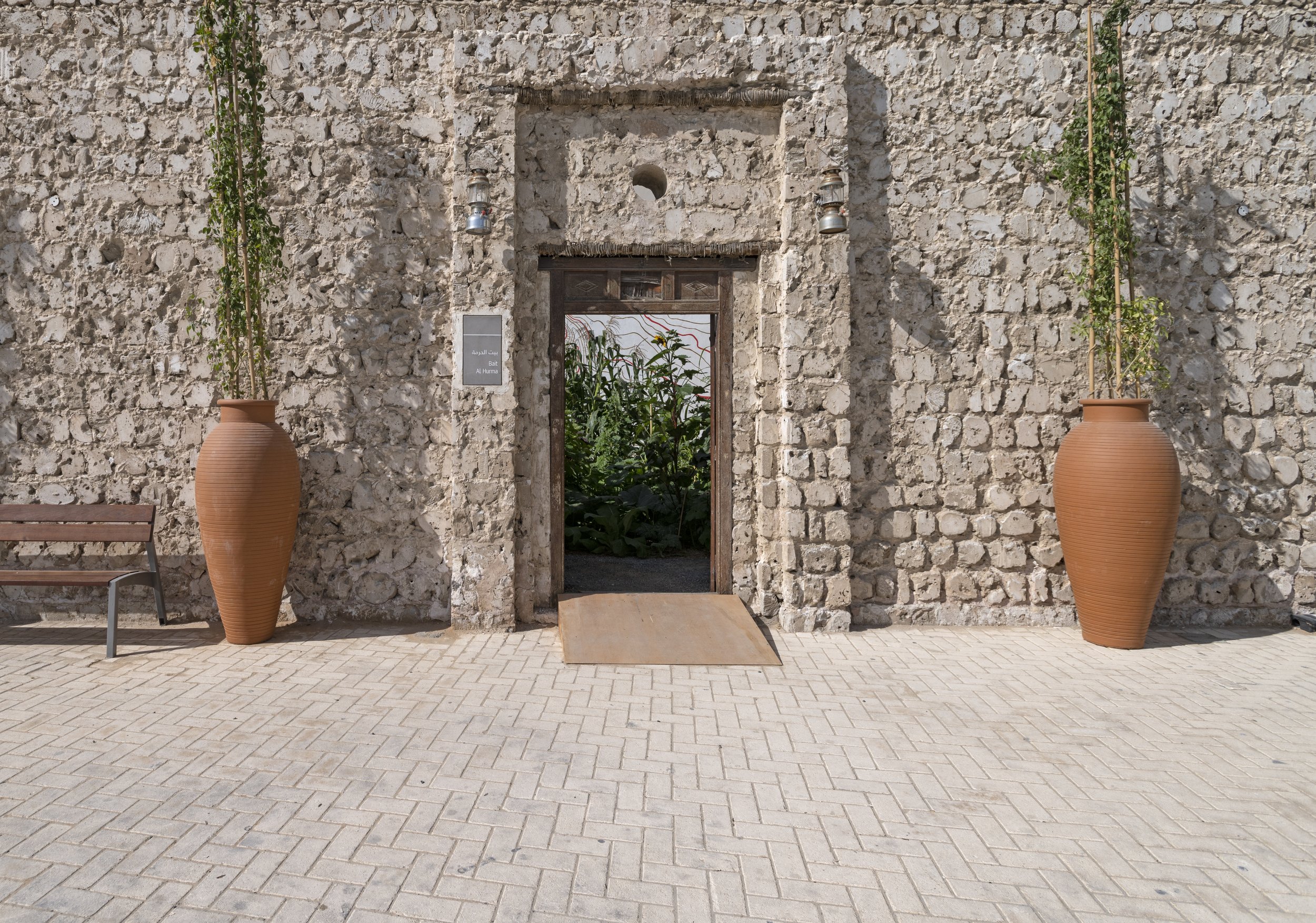
Image courtesy of Sharjah Art Foundation
Photo: Shanavas Jamaluddin
Sound work: A Blessing for Disalienation (2023): This sound piece is one component of an installation produced for the Sharjah Biennale which opened on February 7th and runs till June 11, 2023. The soundtrack of spoken words plays every hour for the duration of the exhibition.
The Teas We Drink: A conversation with fellow artists Shiraz Bayjoo, Bahar Behbahani, Yoeri Guépin and Tahila Mintz.
In this gathering during the opening week of the Bienal, we served each other tea and shared stories from the Caribbean, Iran, The Netherlands, Mauritius and the USA while tasting unique blends that include the delicious tulsi, lemongrass, passion flower, chamomile and West India bay leaf among others. The exchange was inspired by folklore, tradition and knowledge systems, some of which circumnavigated the globe through forced migrations whereby people brought recipes with them for survival, resistance, healing, ritual and poisons.
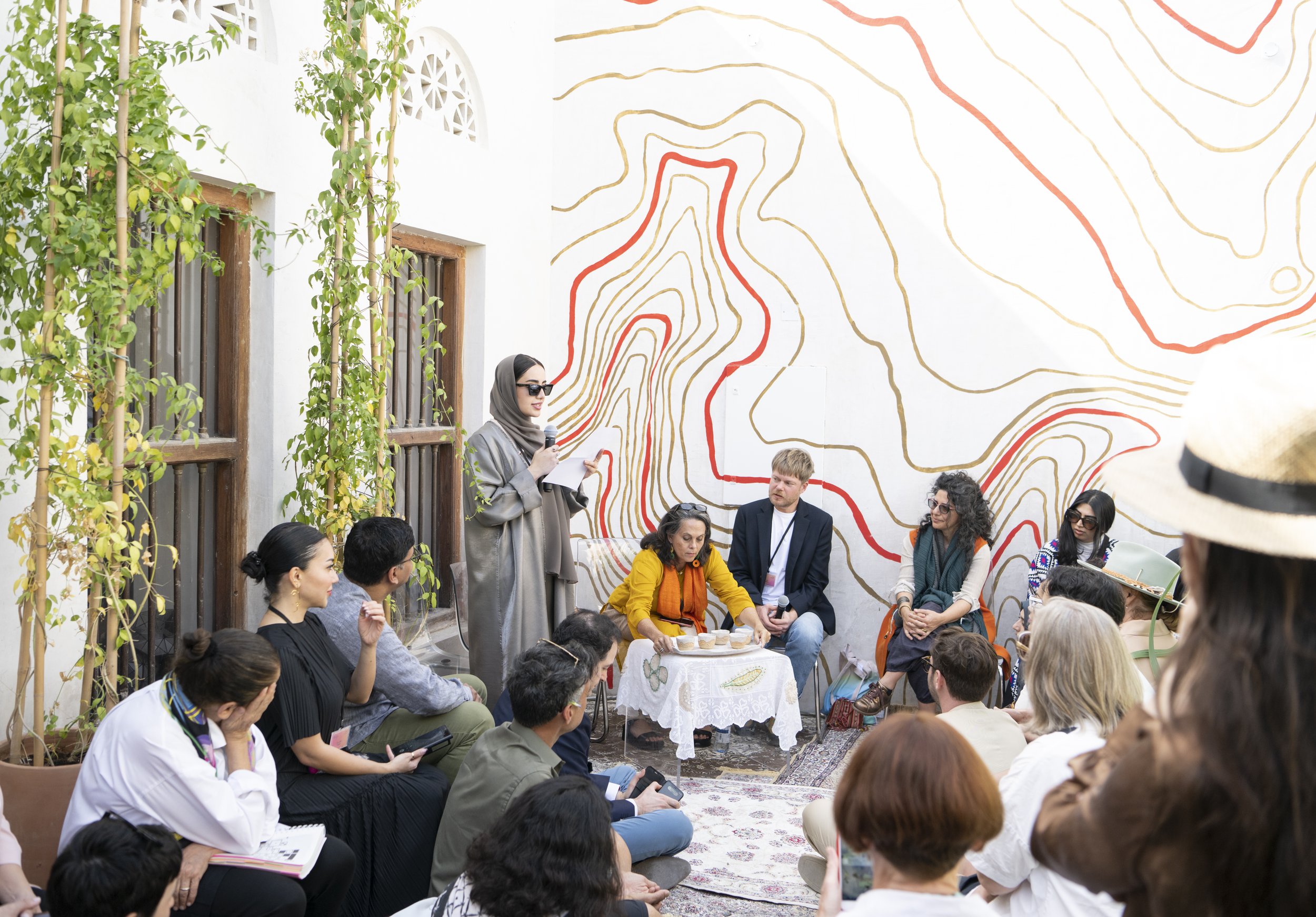
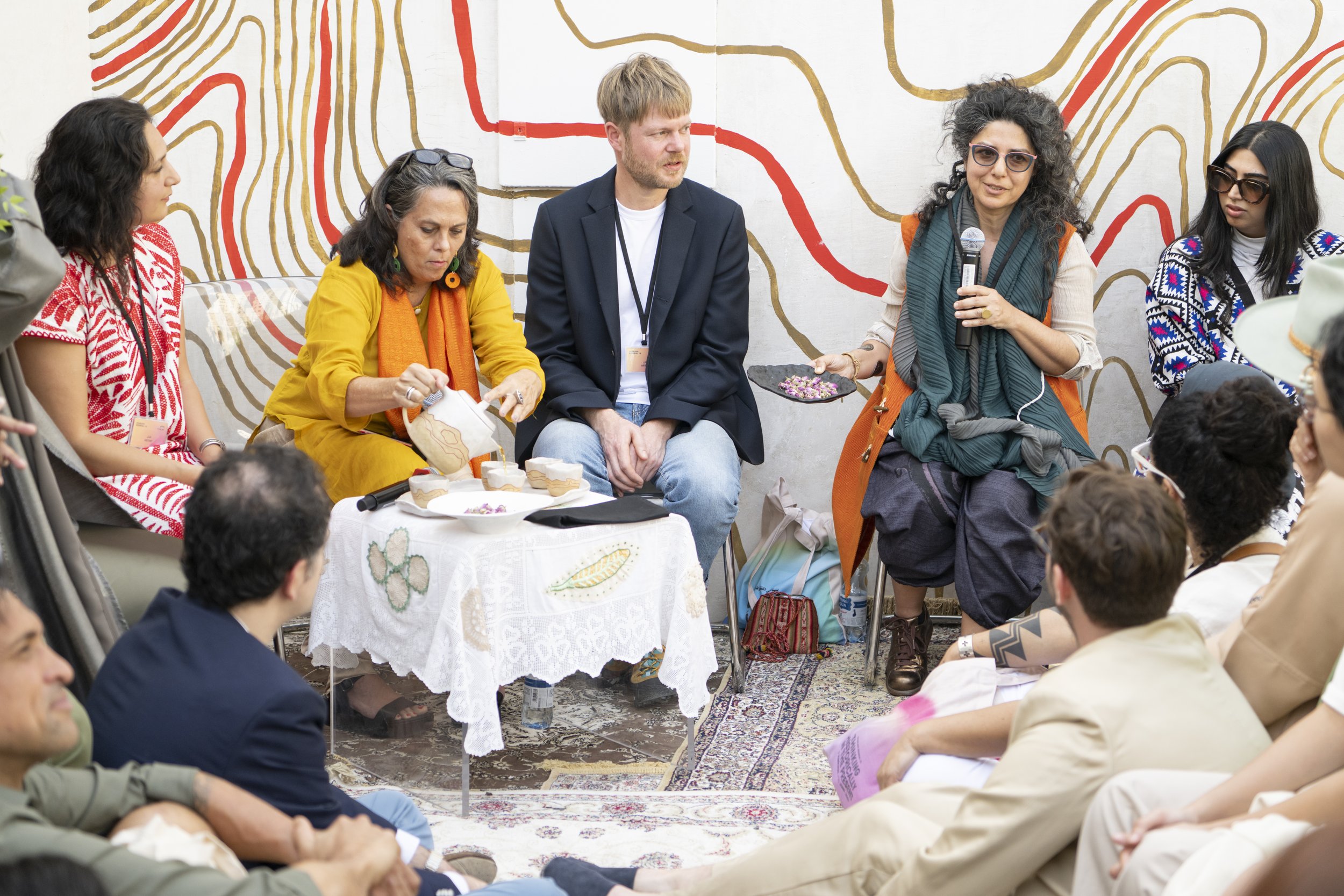
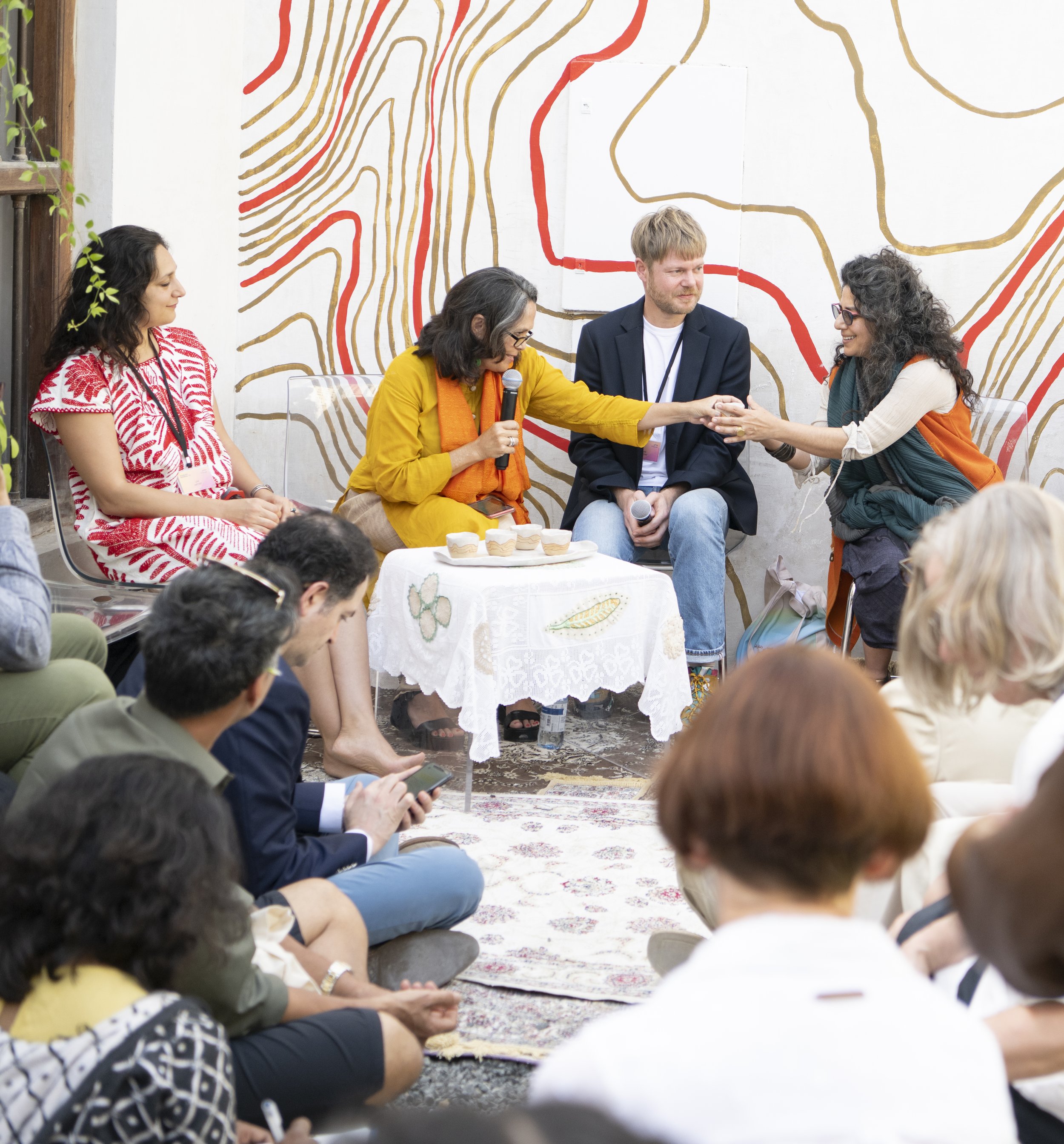
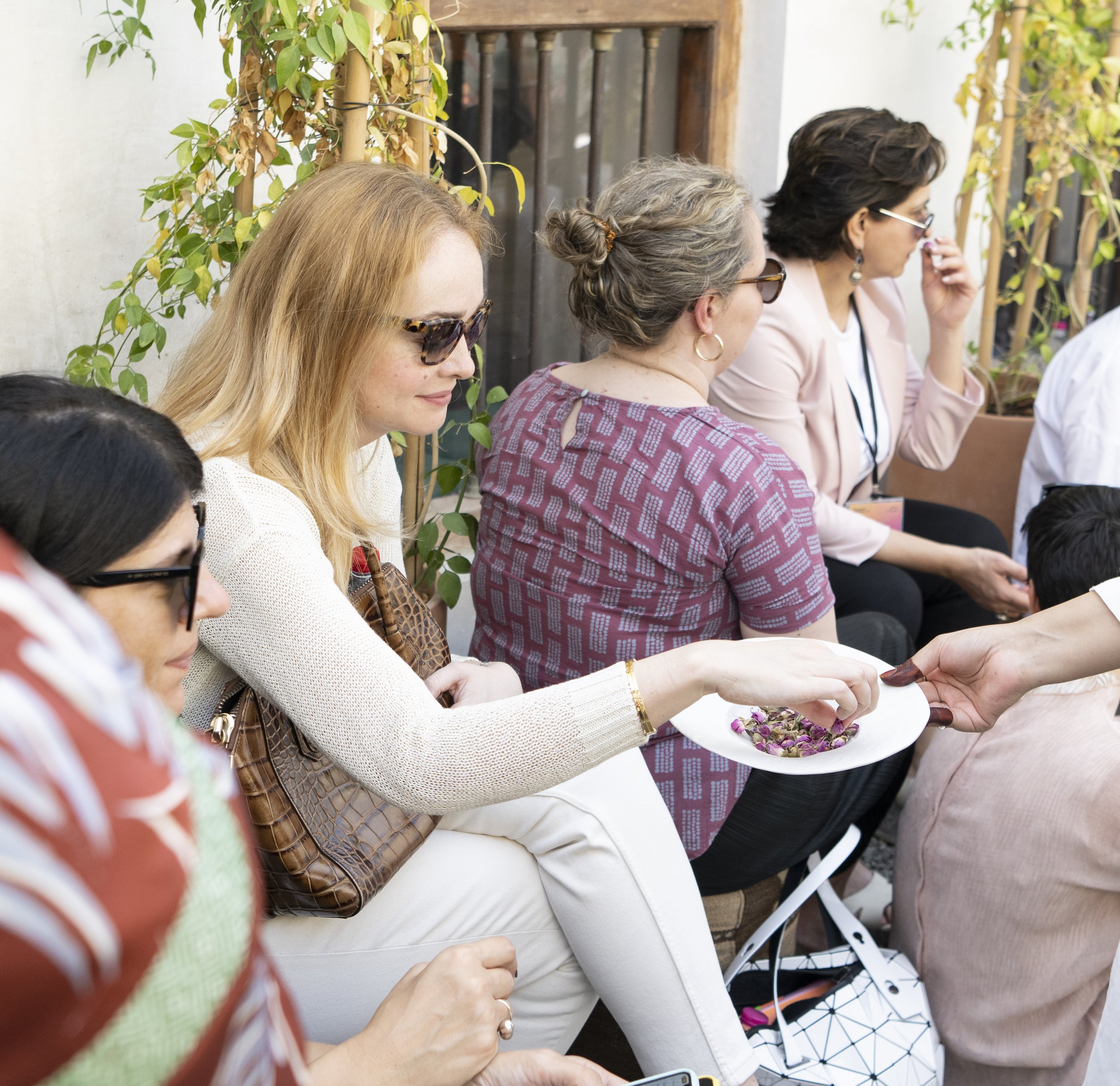
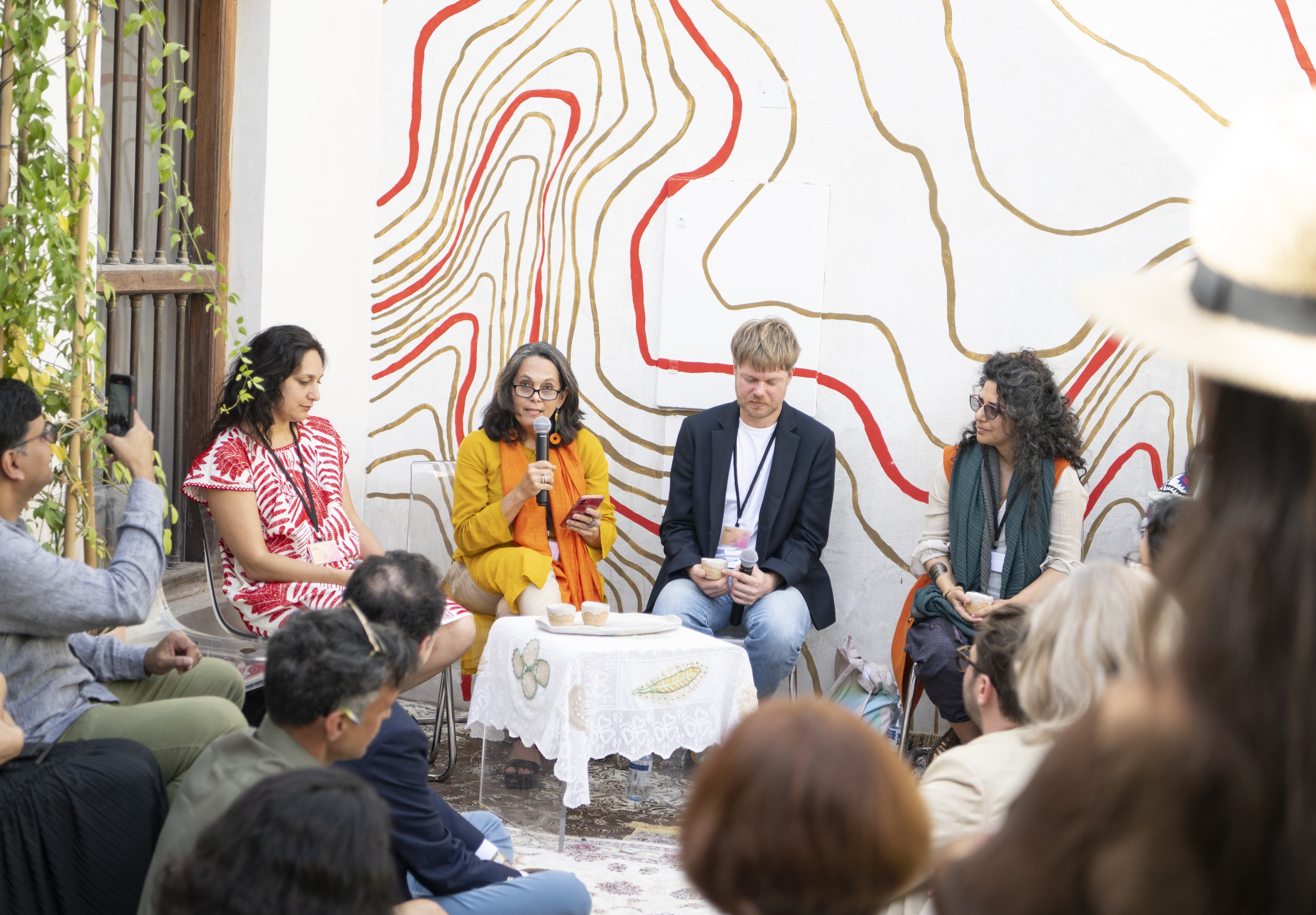
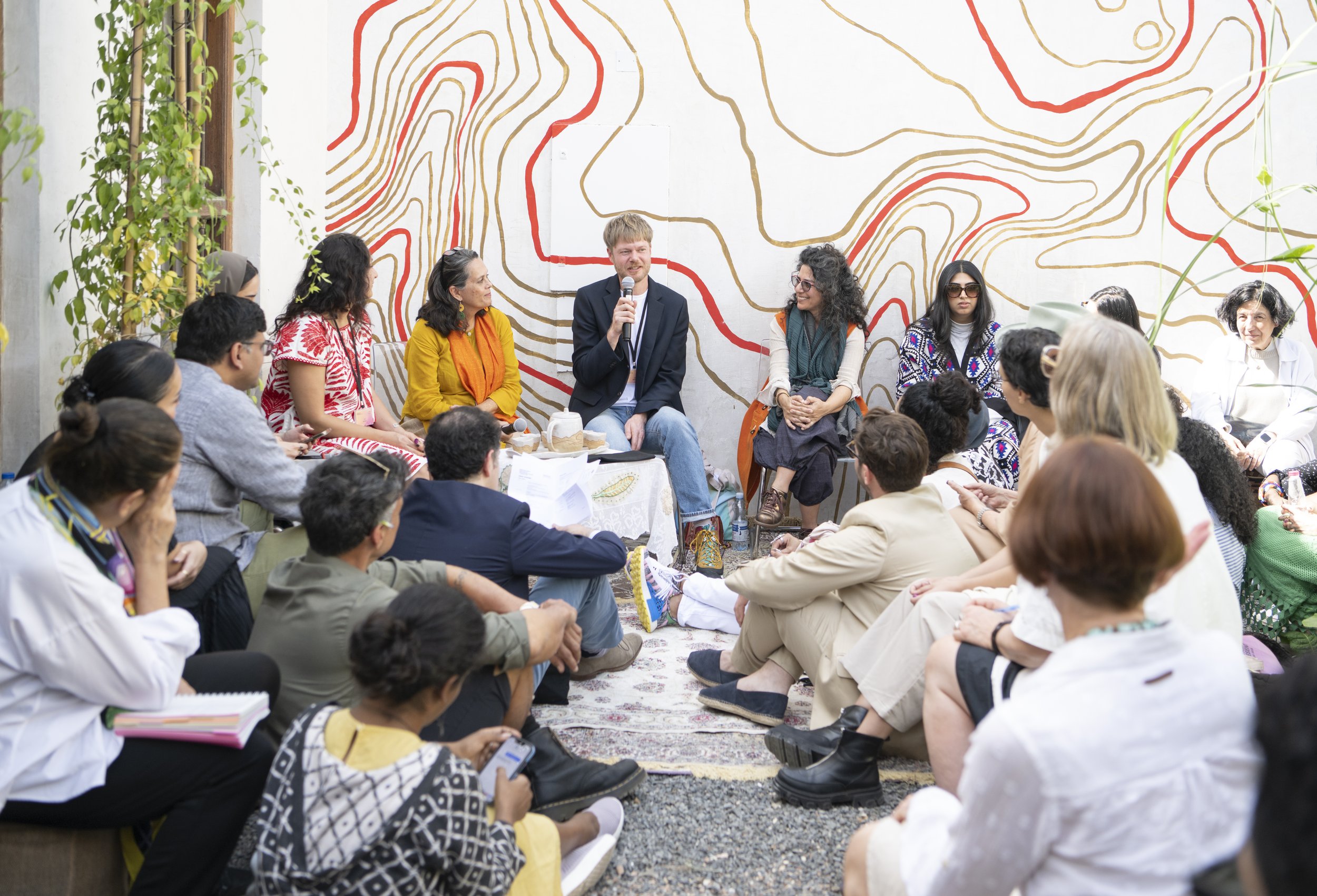
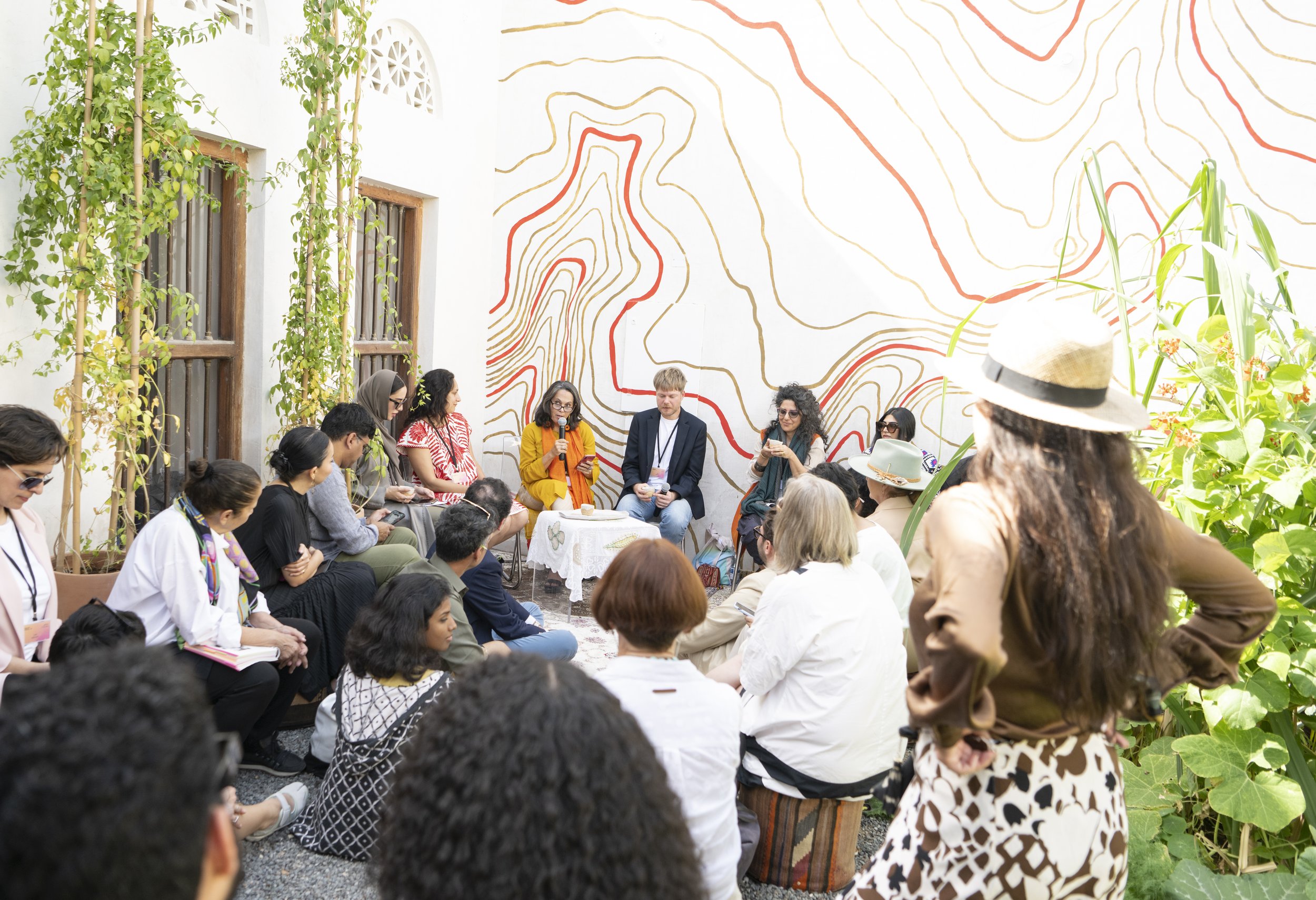
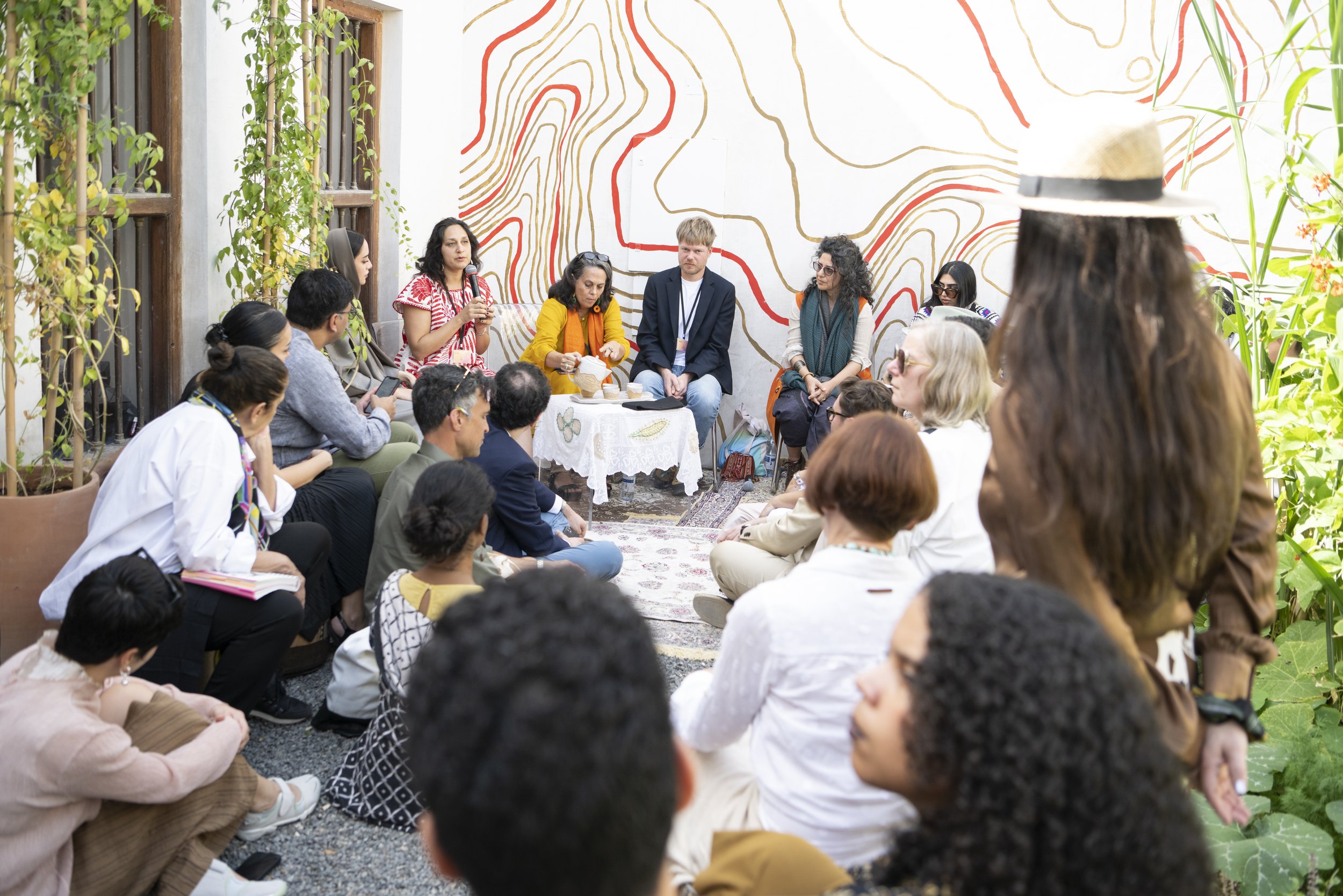
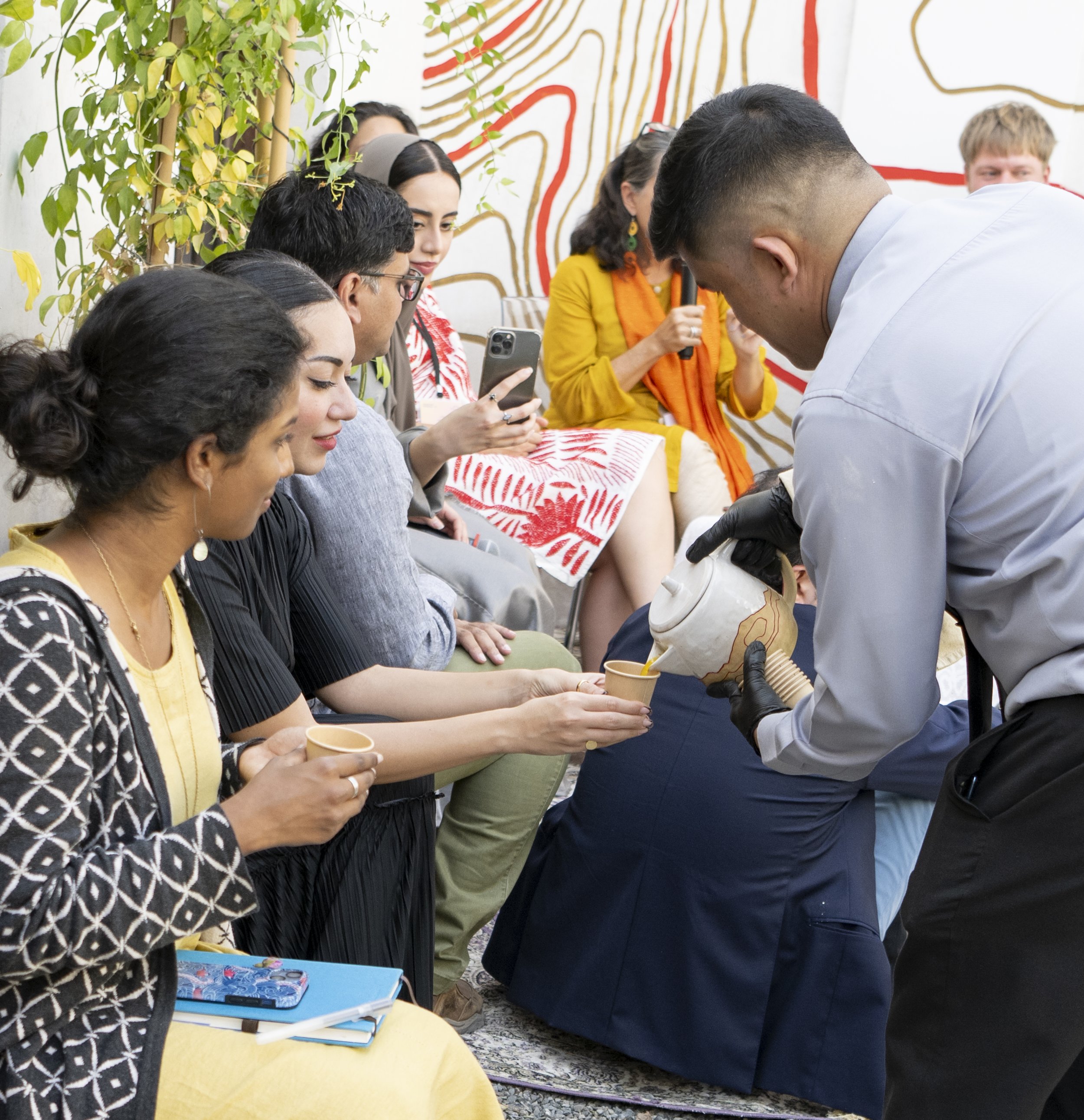
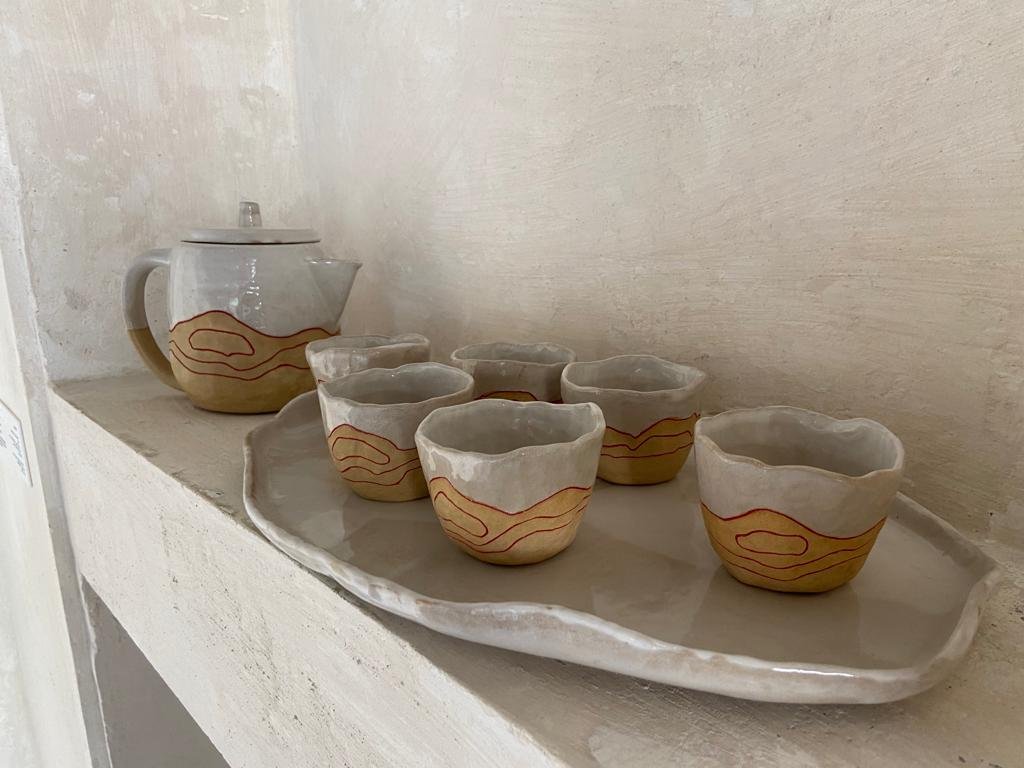
Phase 2: In bloom.
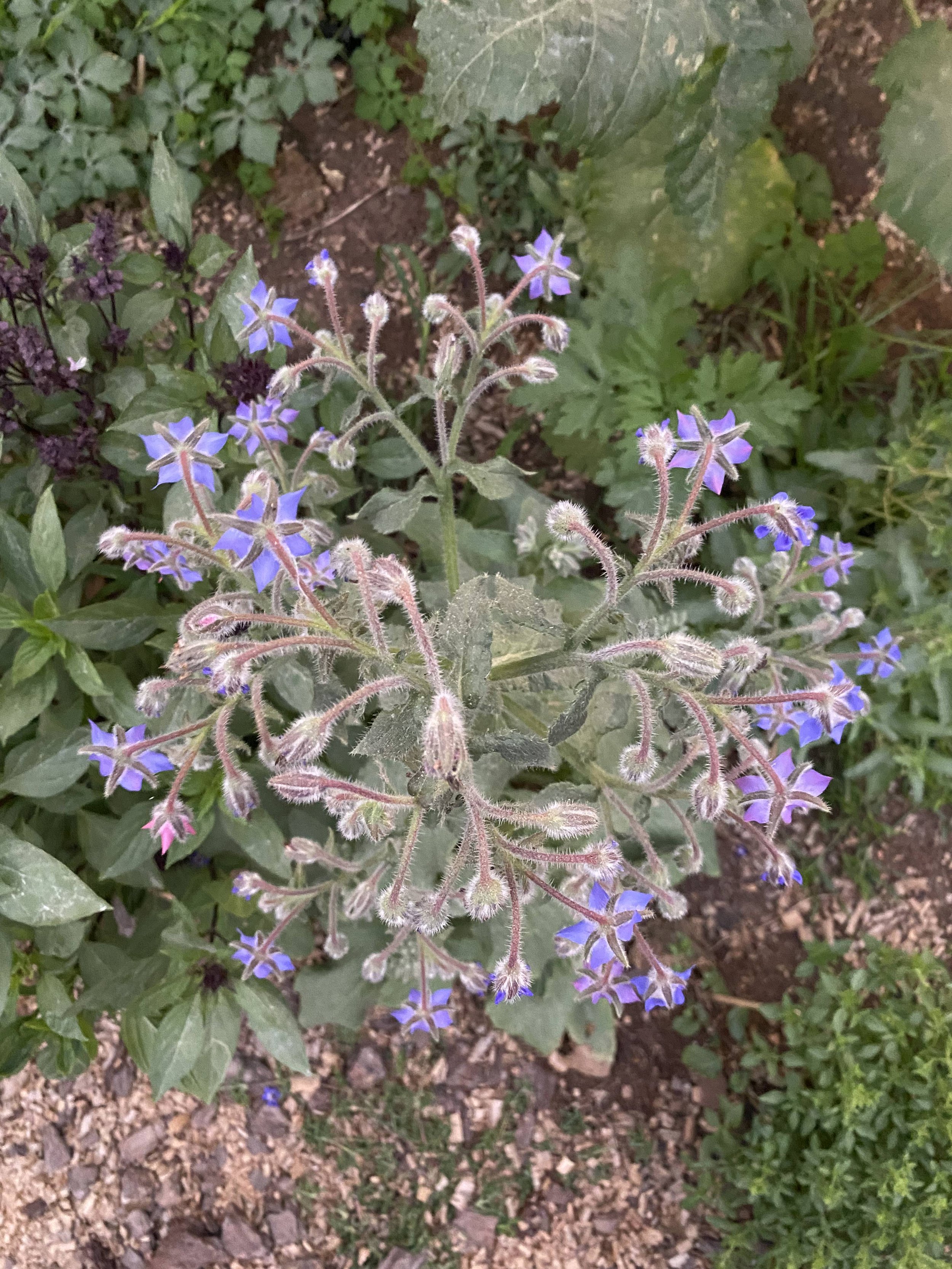
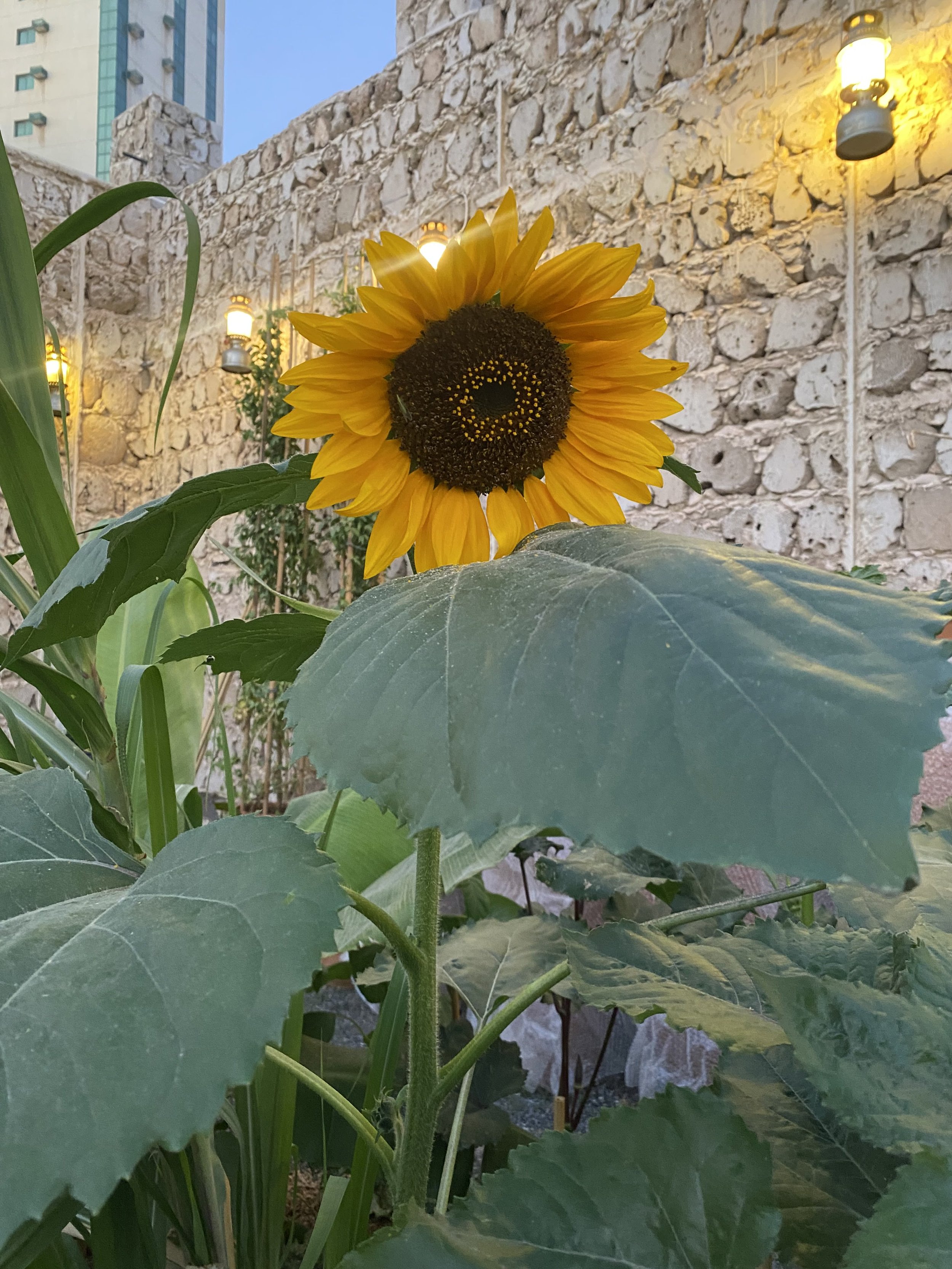
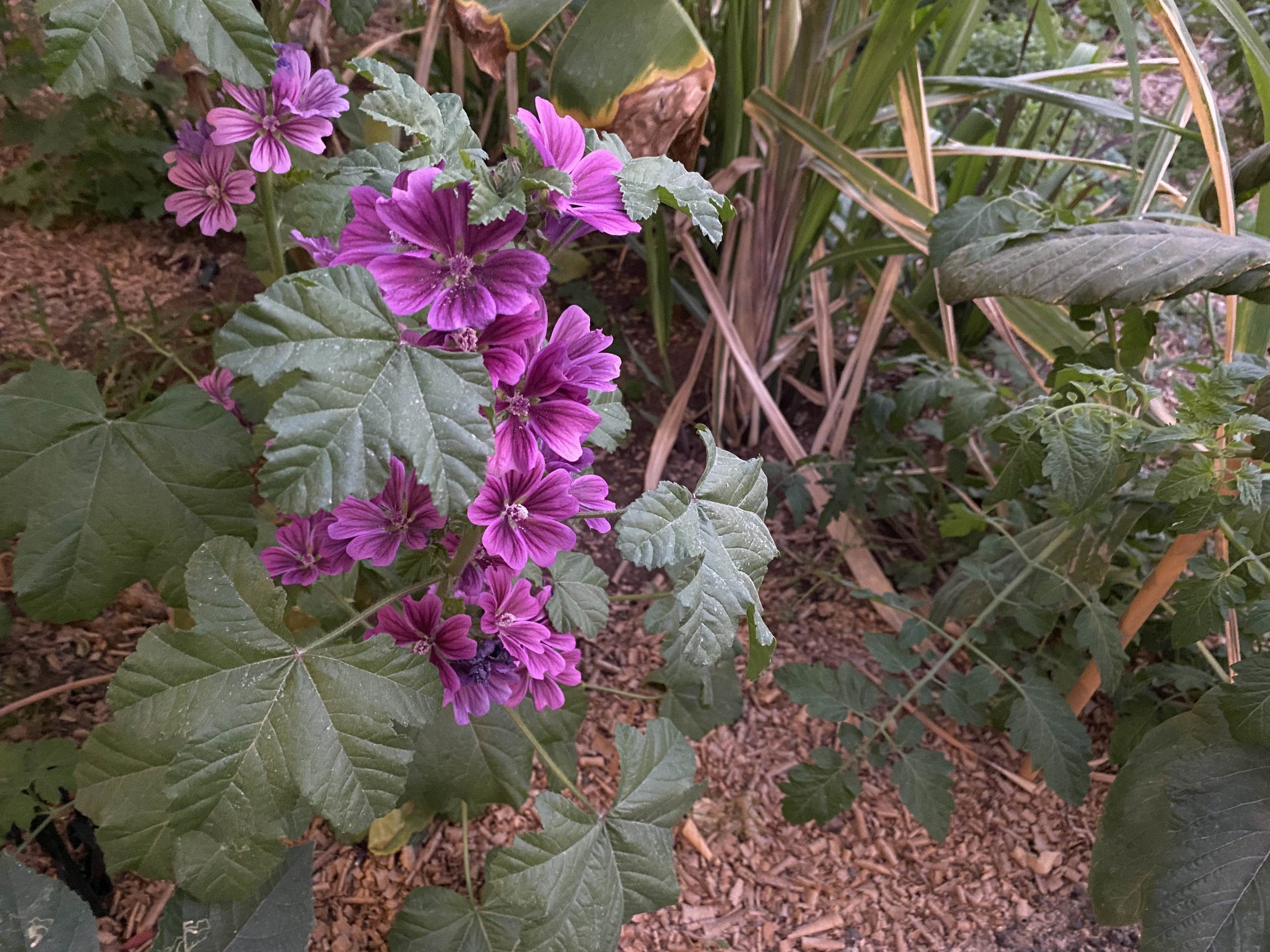
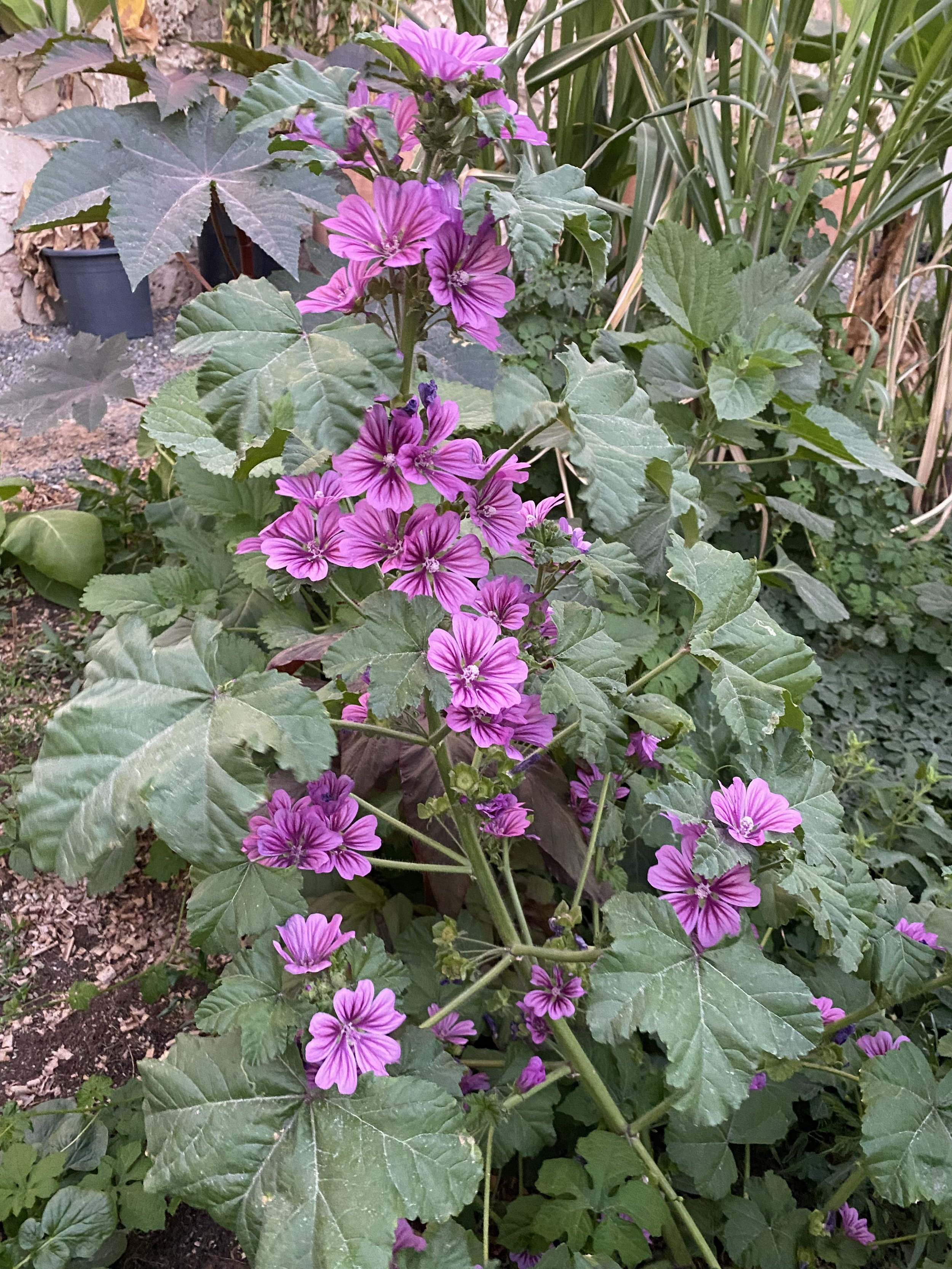
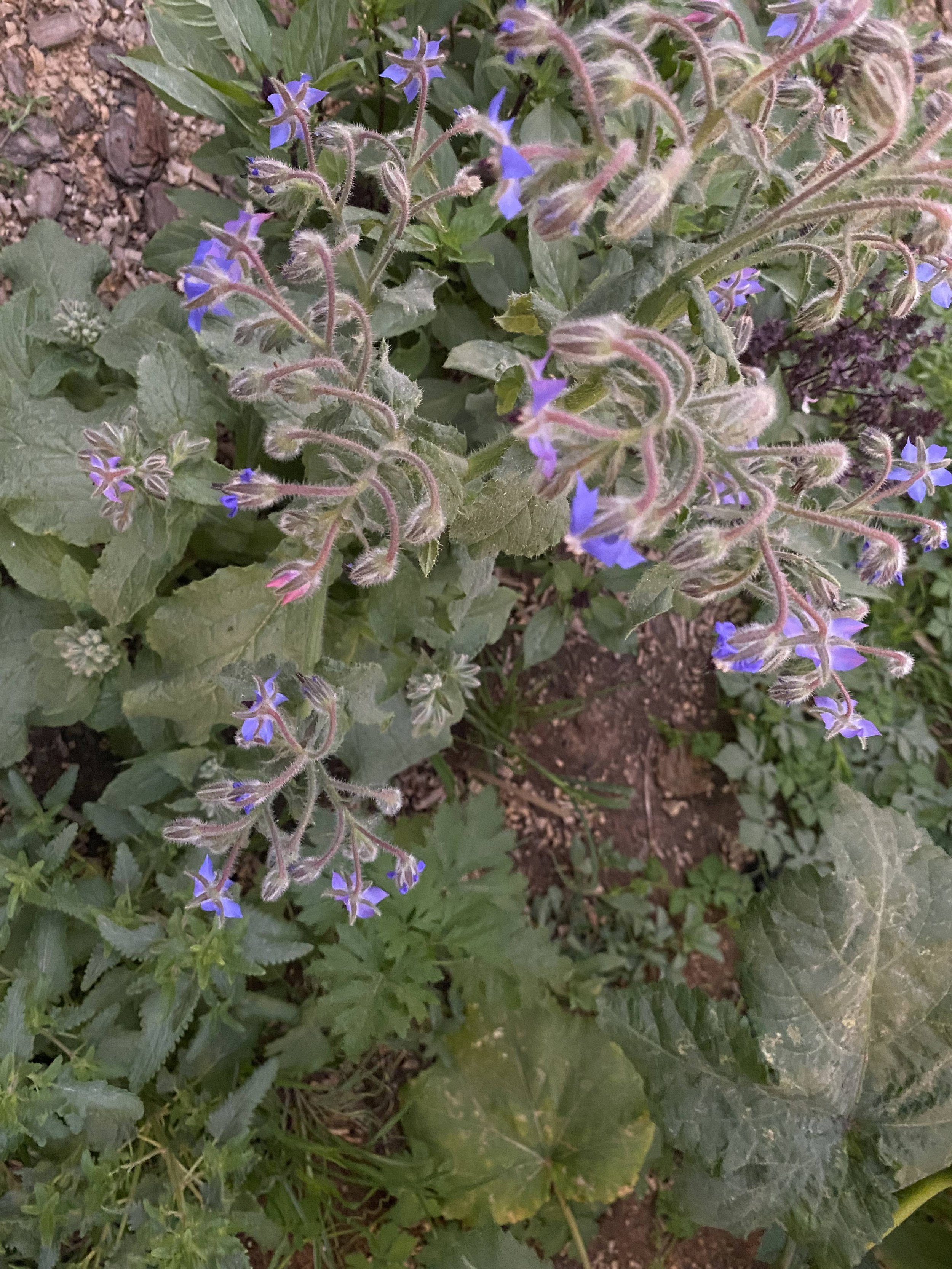
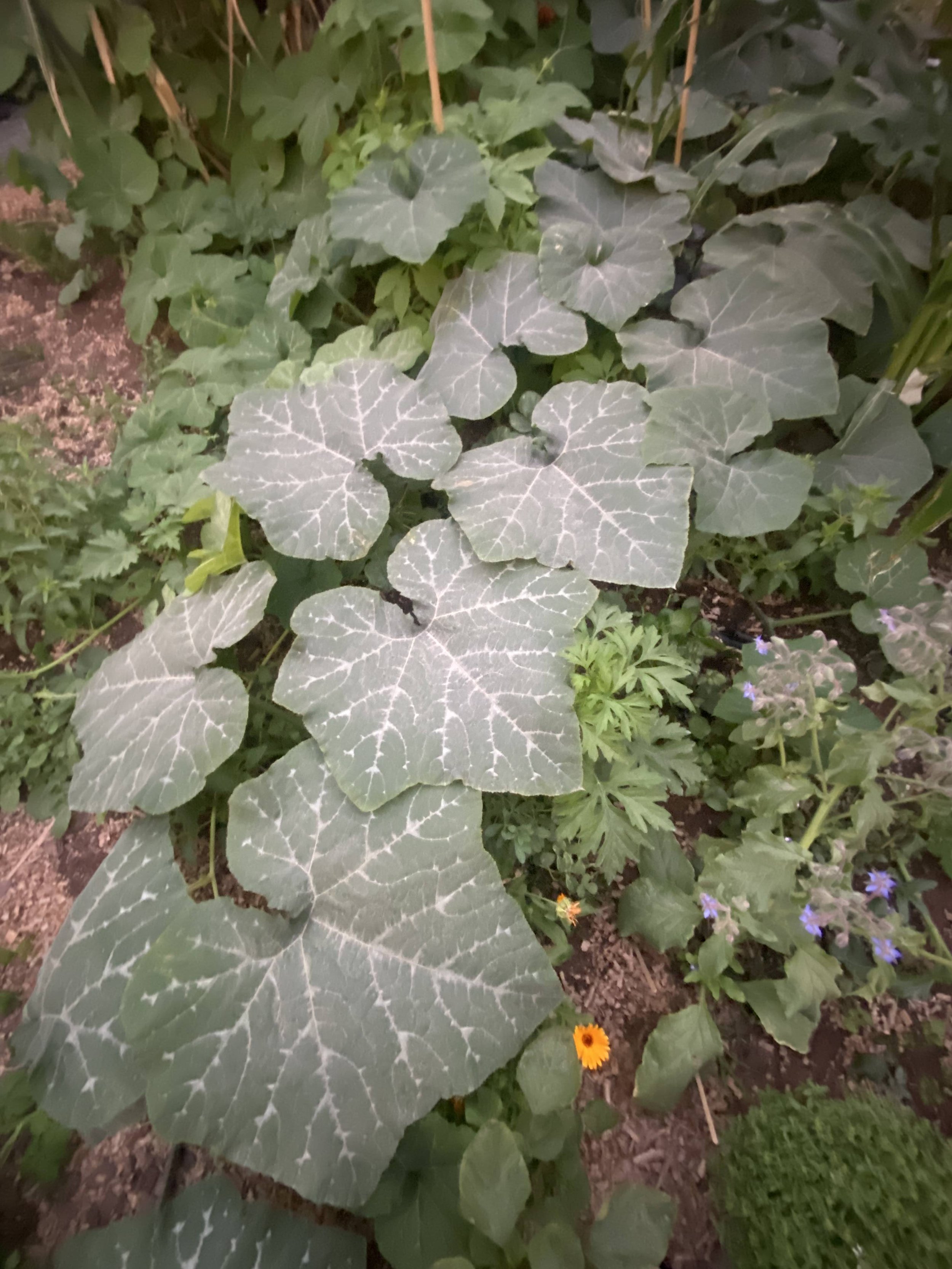
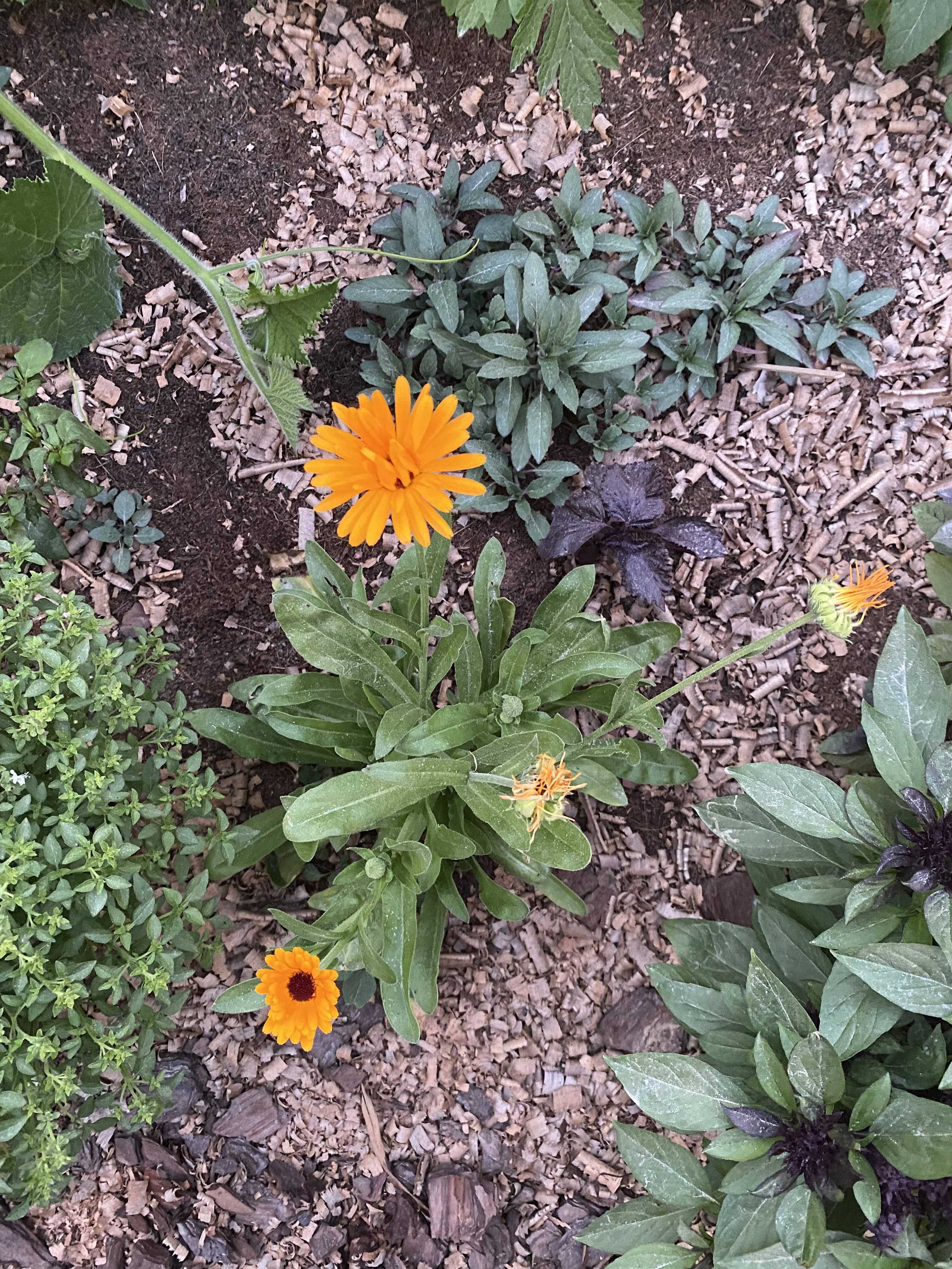
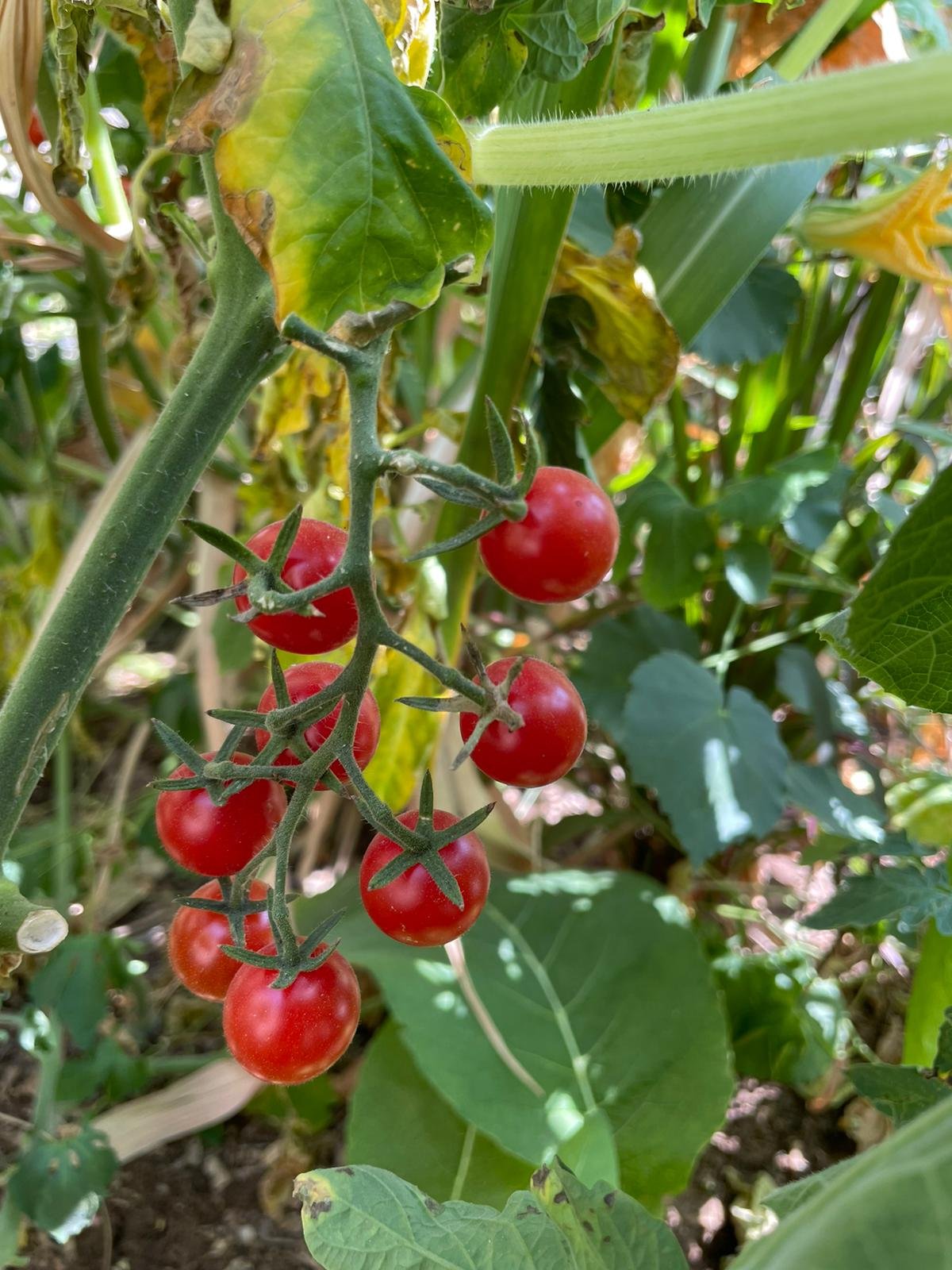
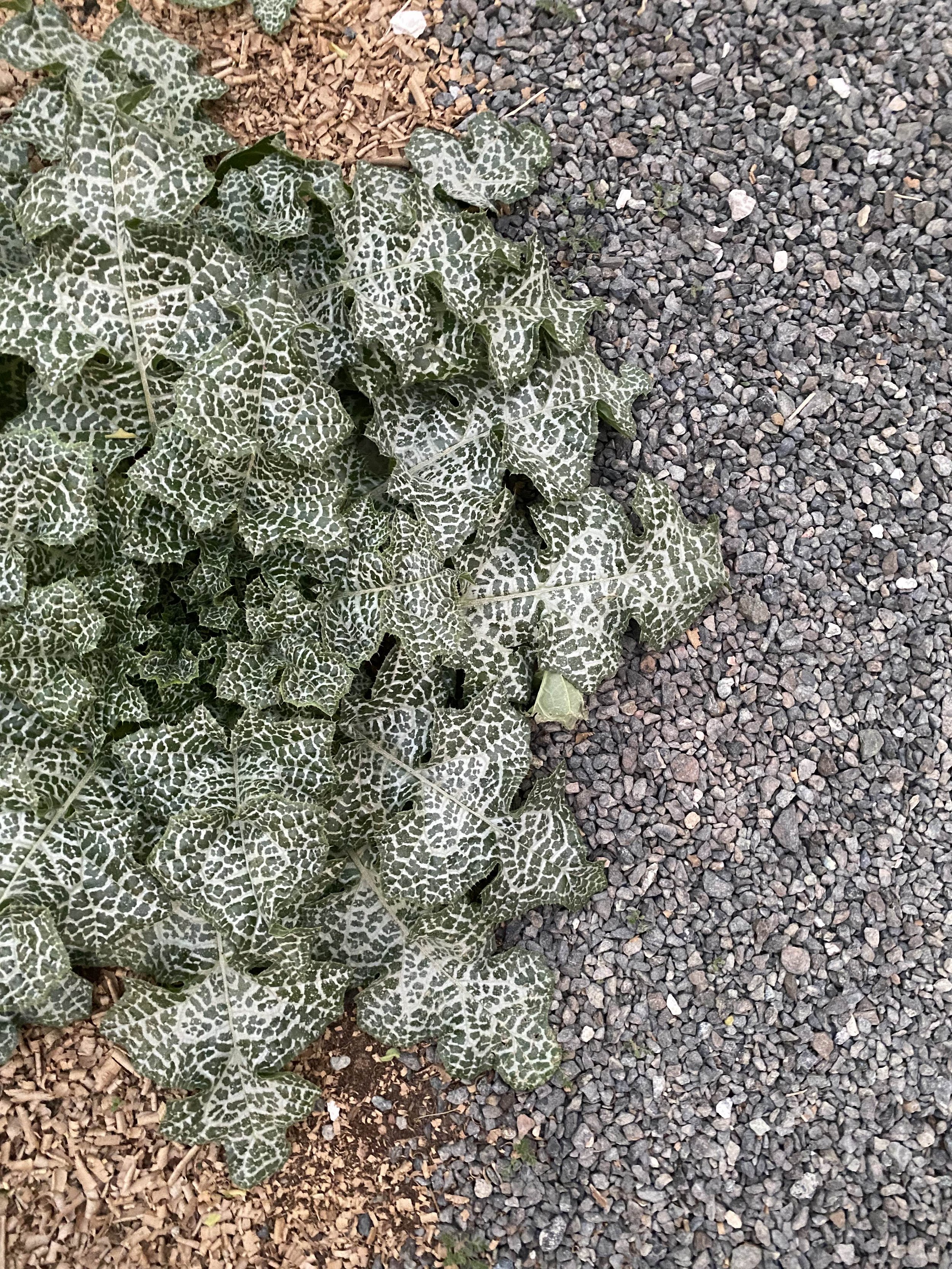
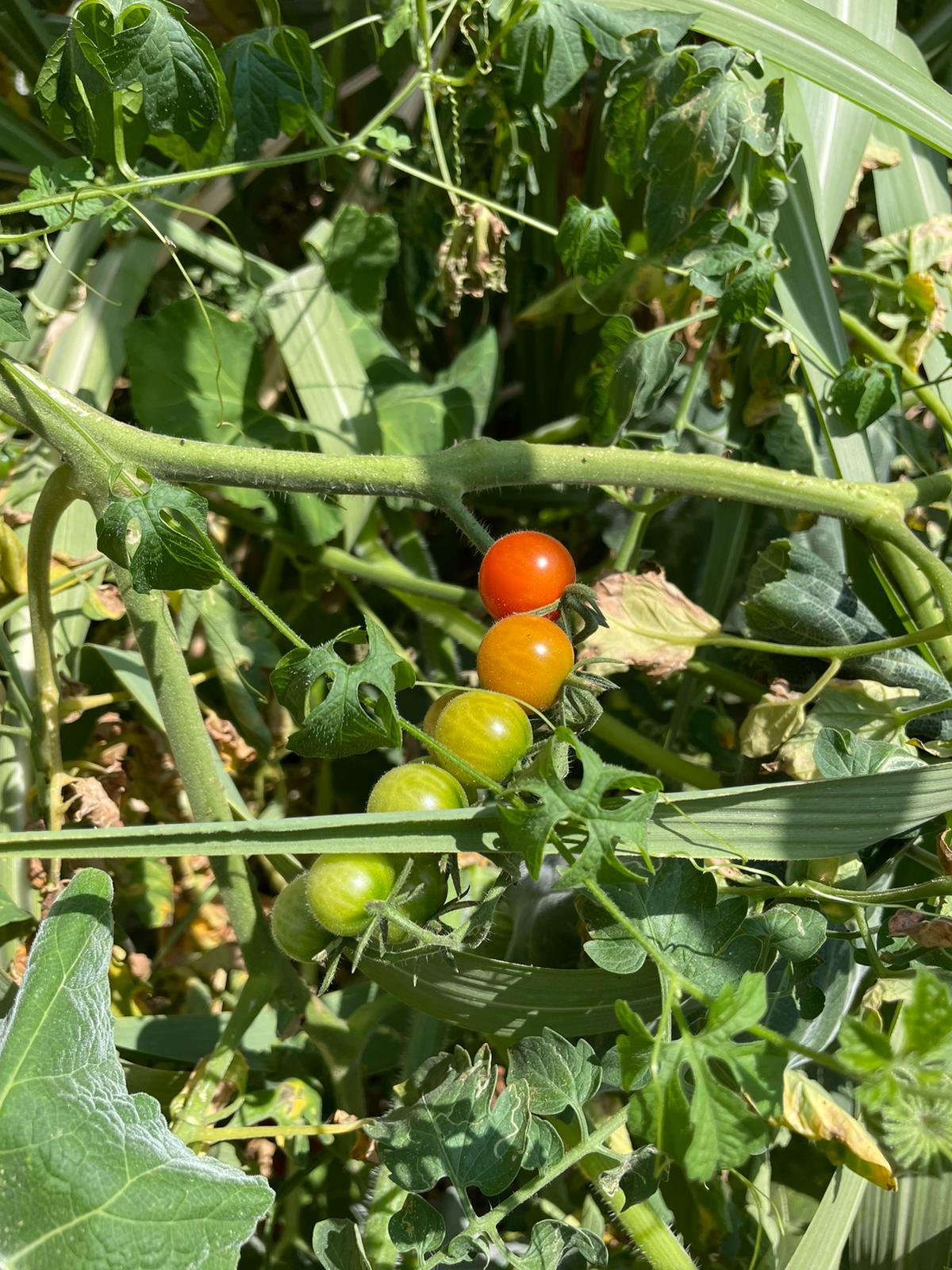
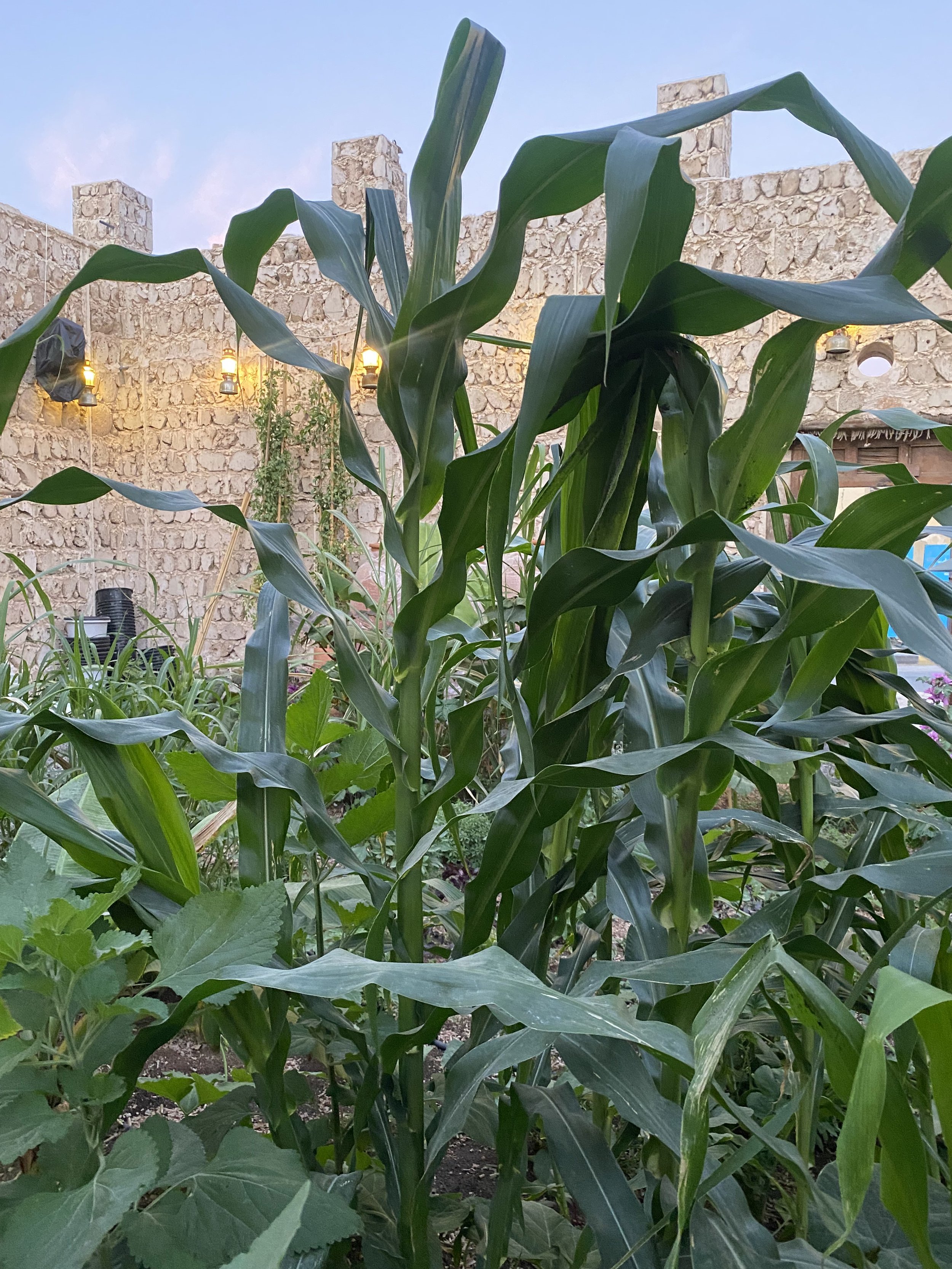
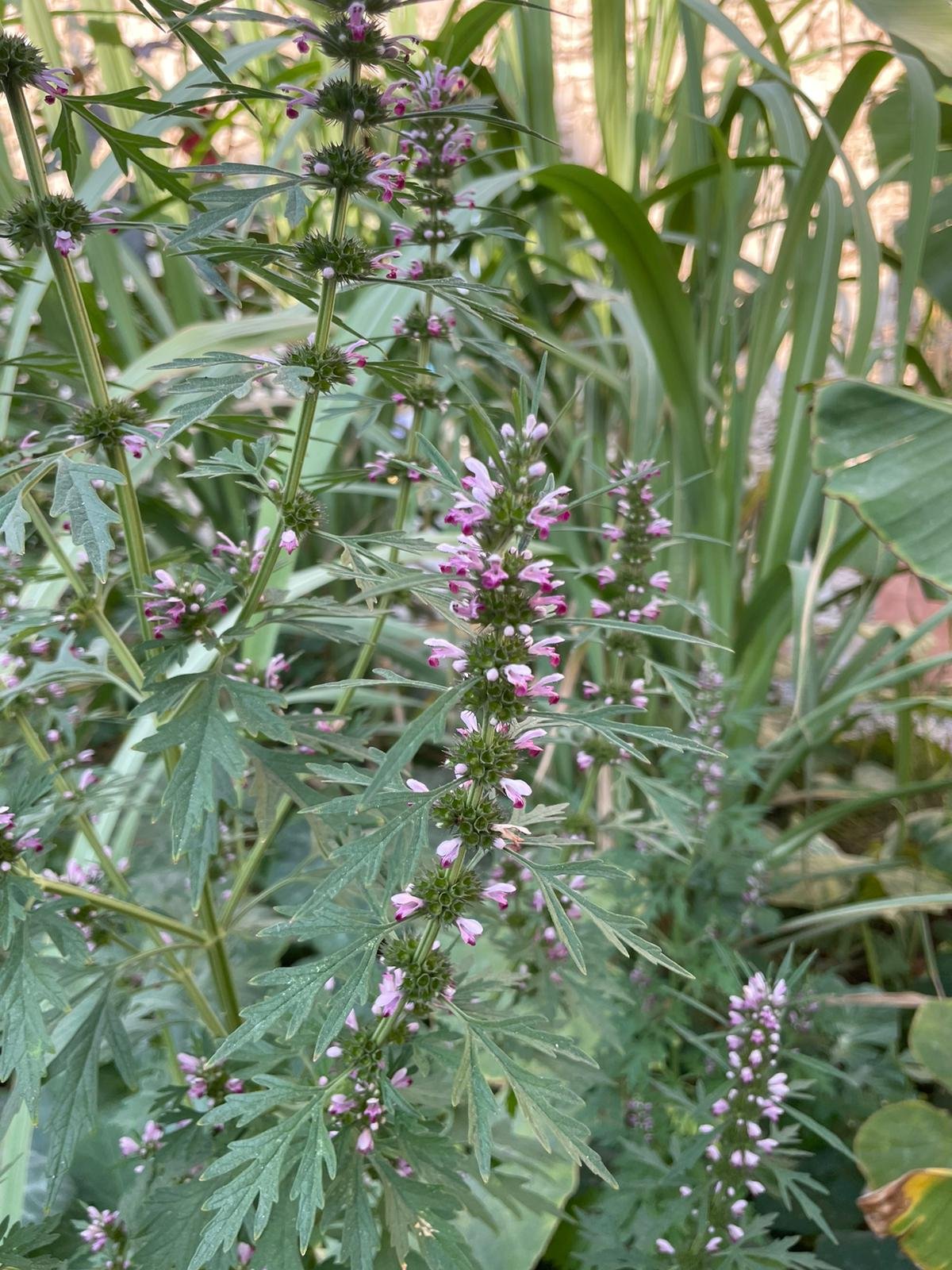
Photos courtesy of Amal Alkhaja and Pepe Diví
Phase 1: Seed planting, compost mixing, landscape design and painting all taking place during a dense site visit in November 2022.
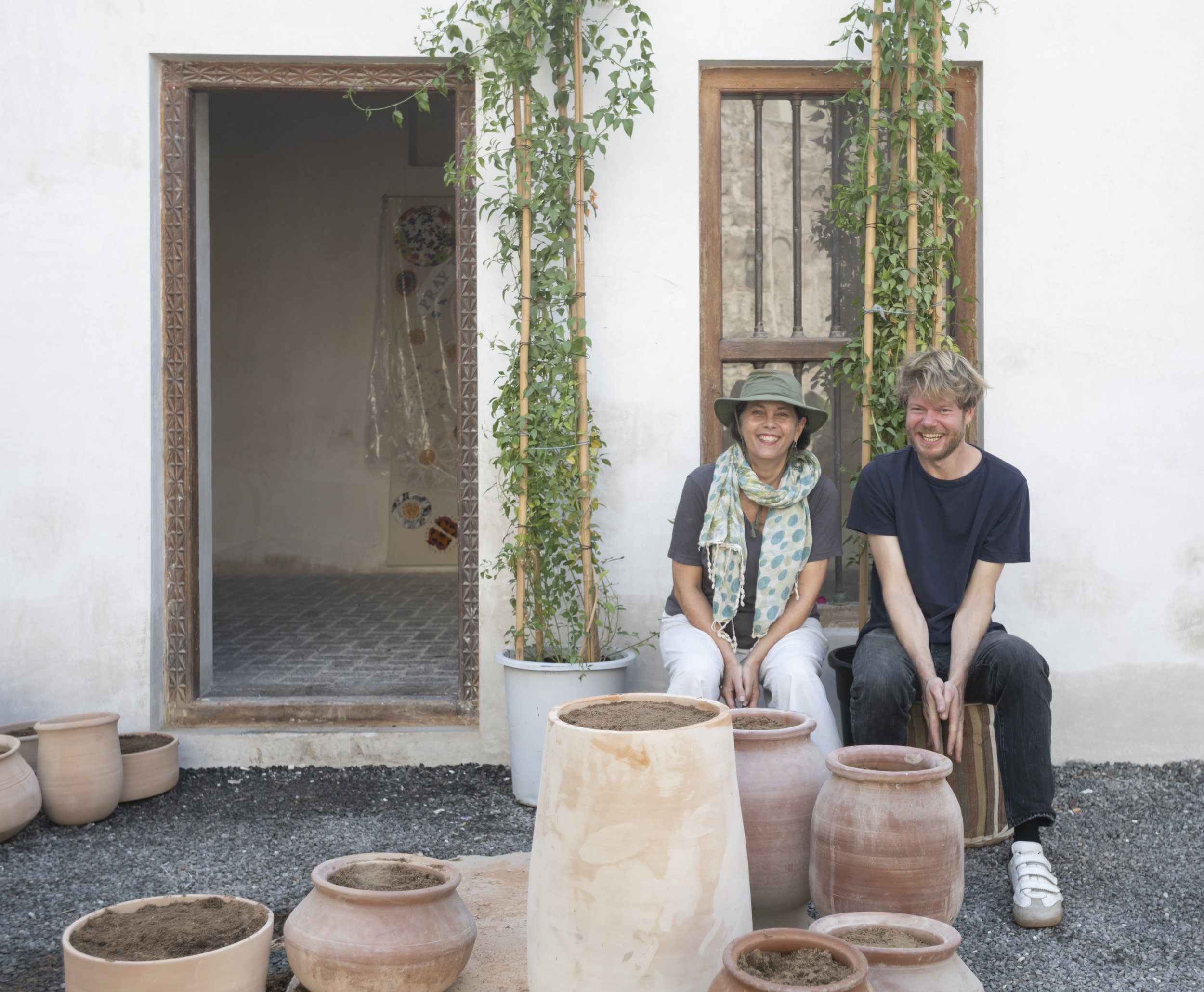
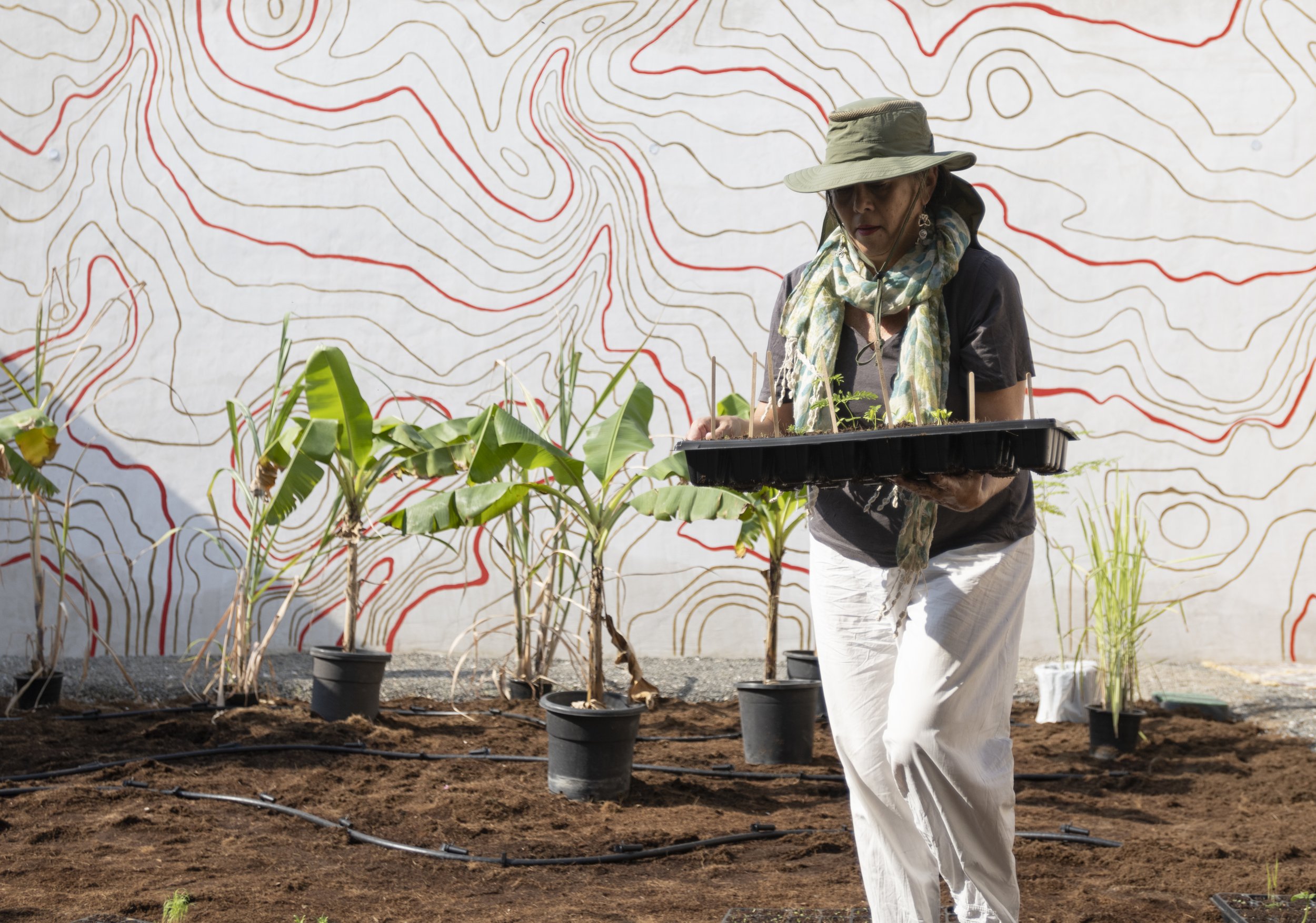
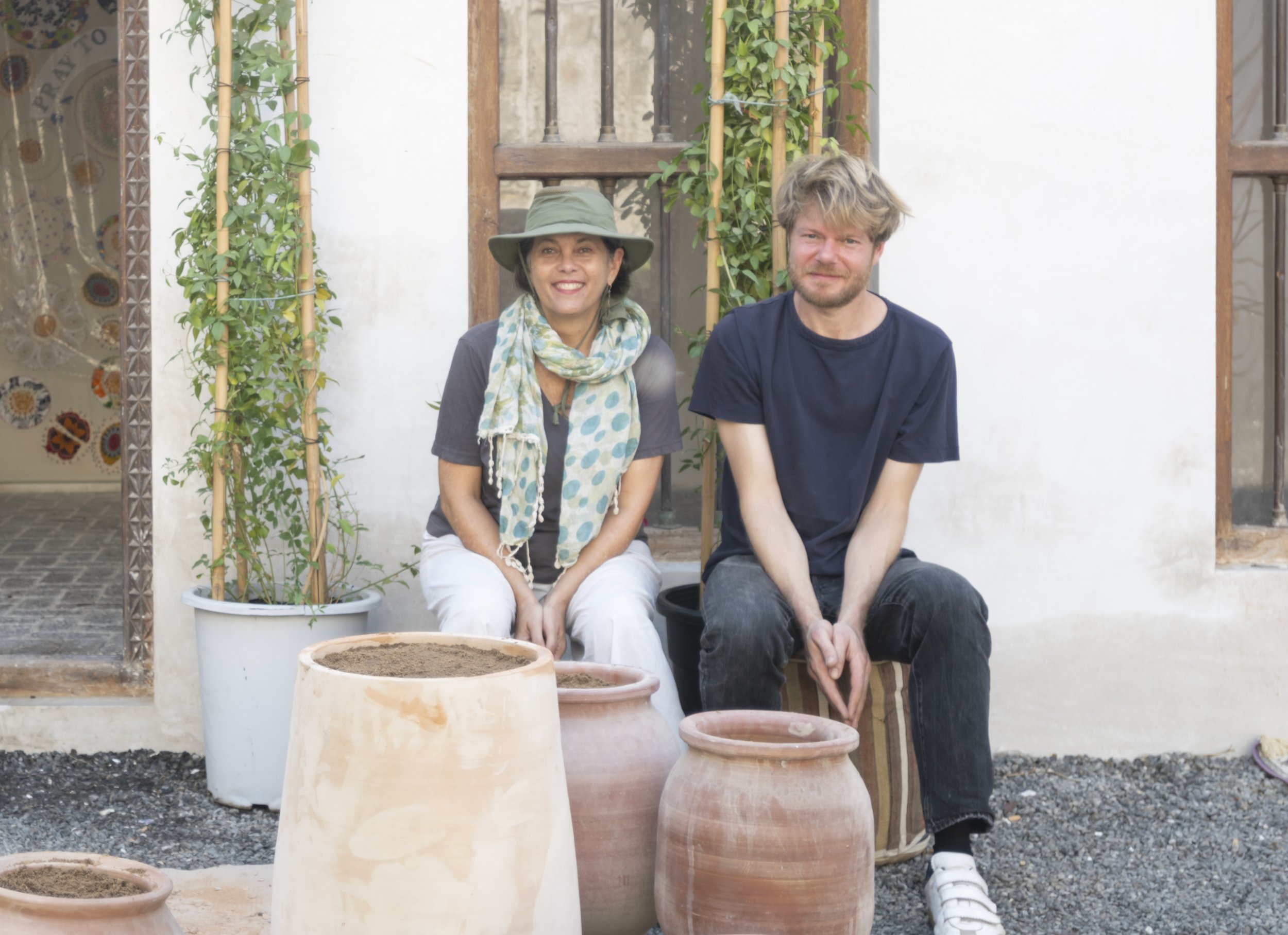
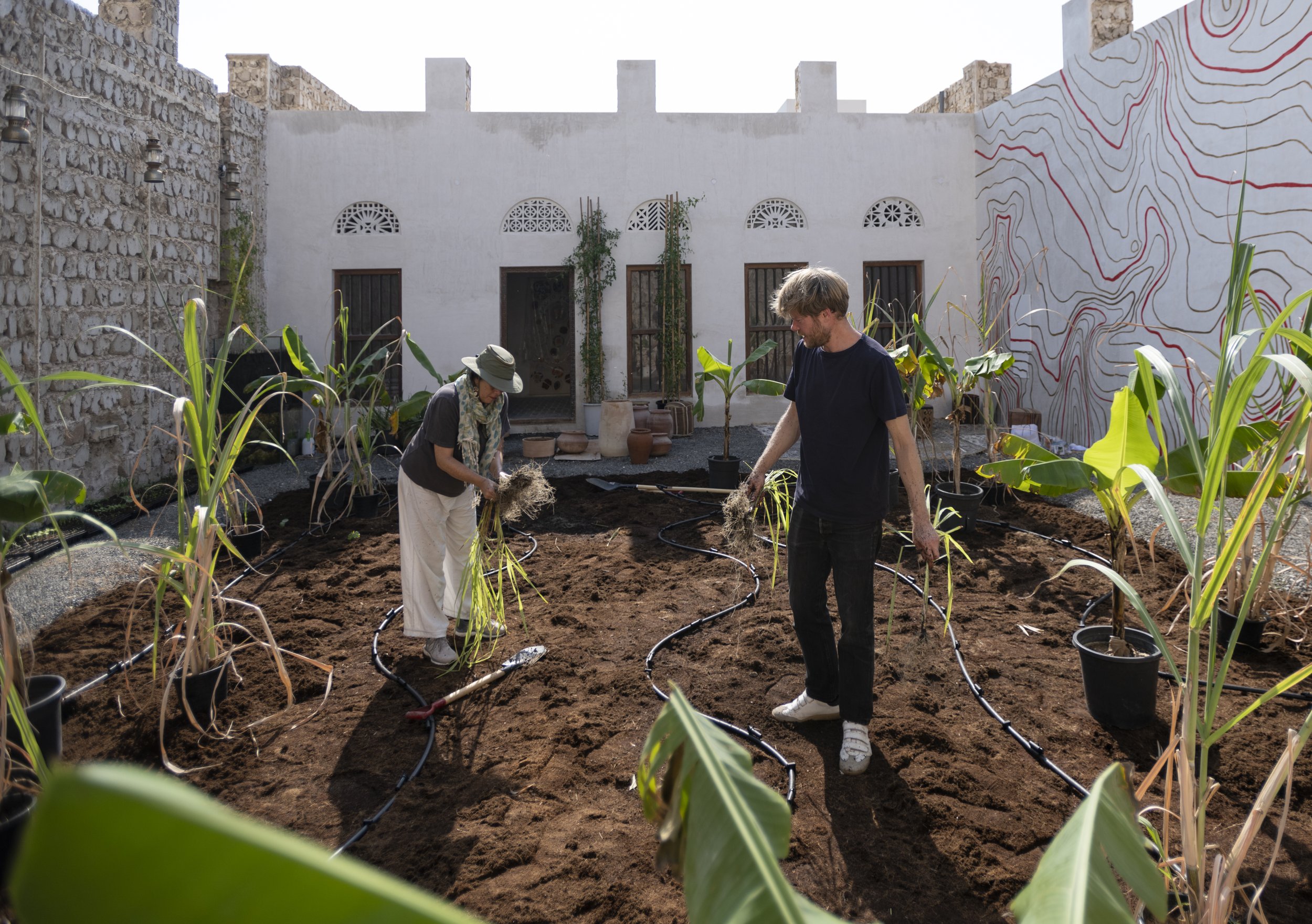
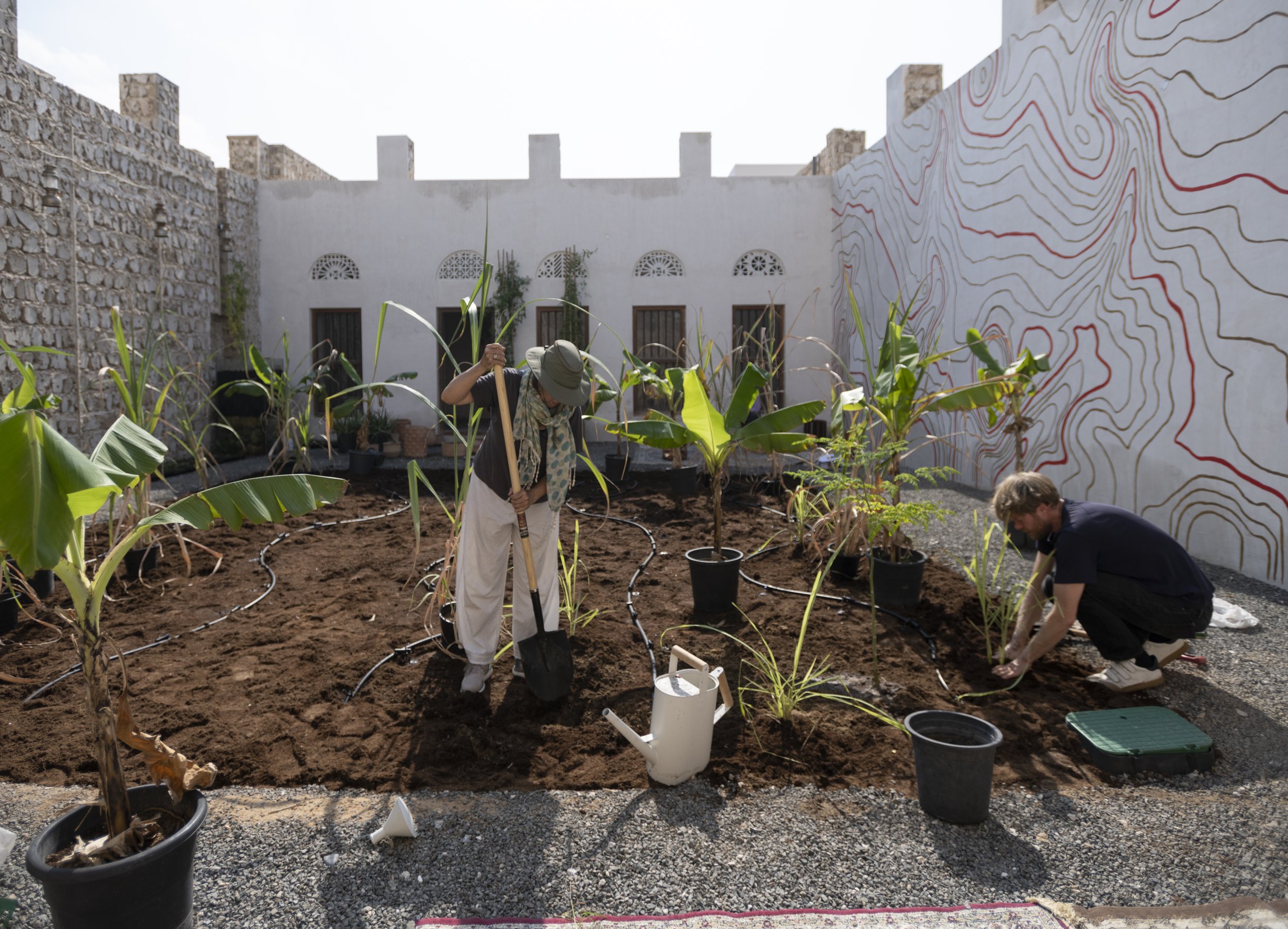
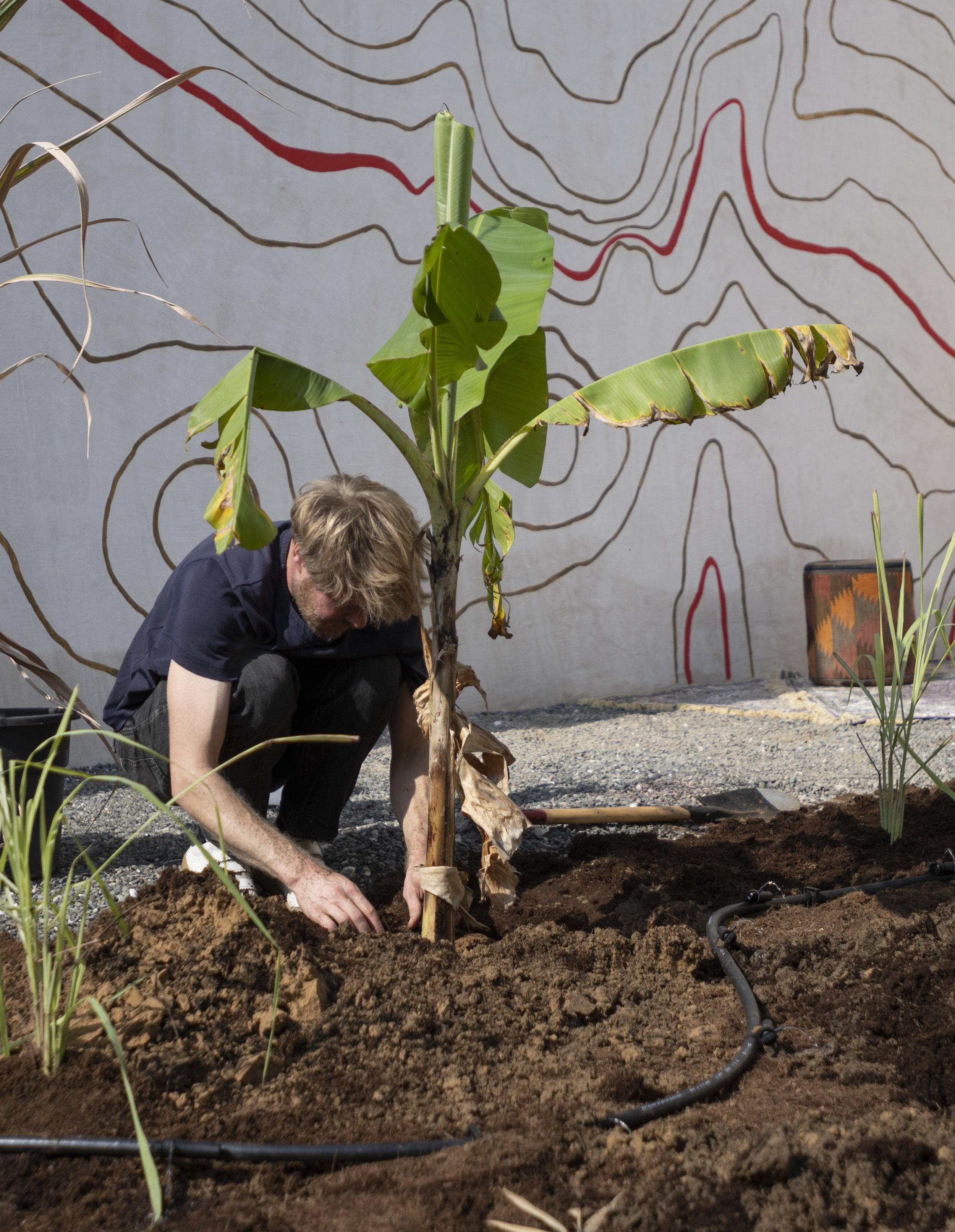
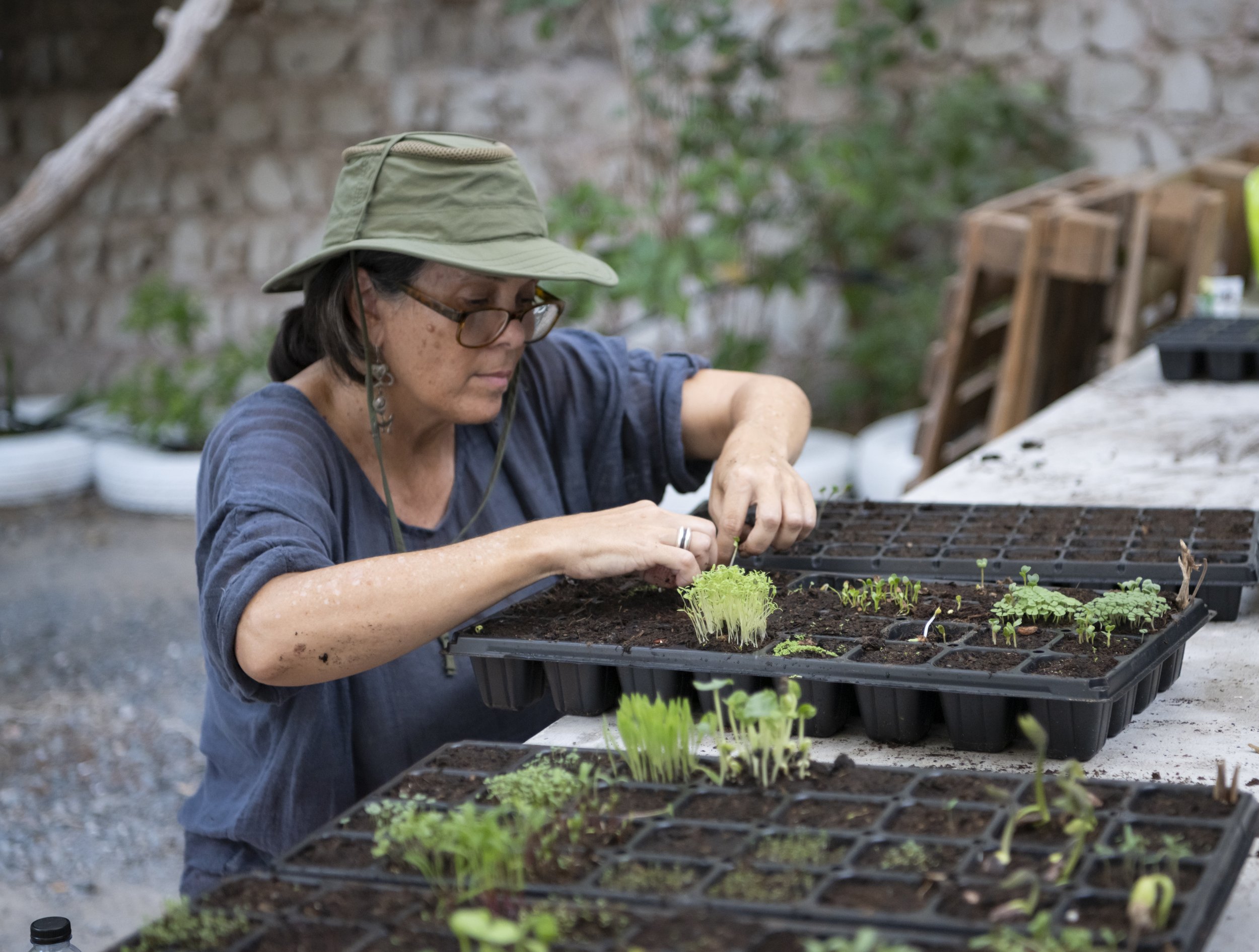
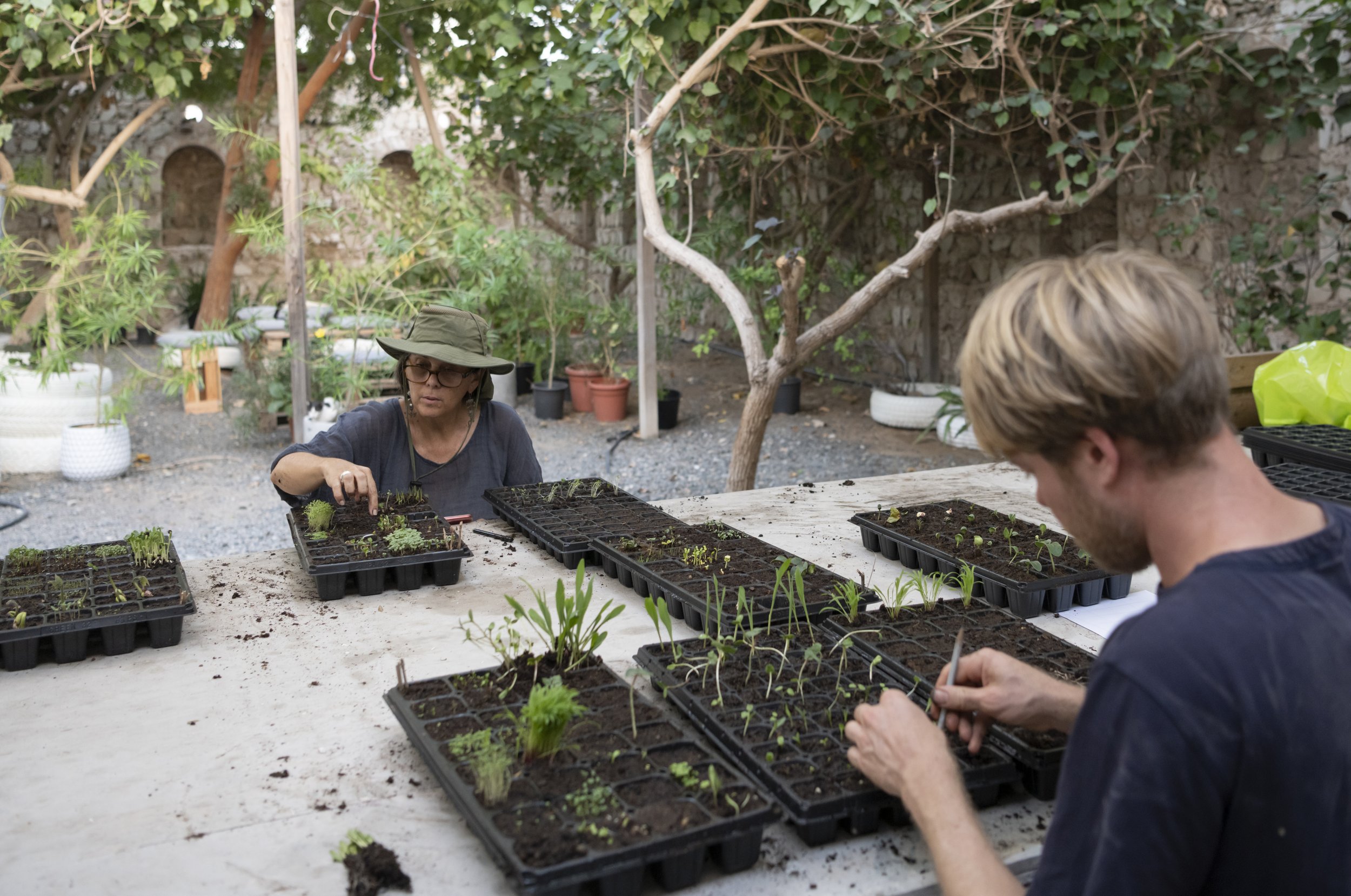
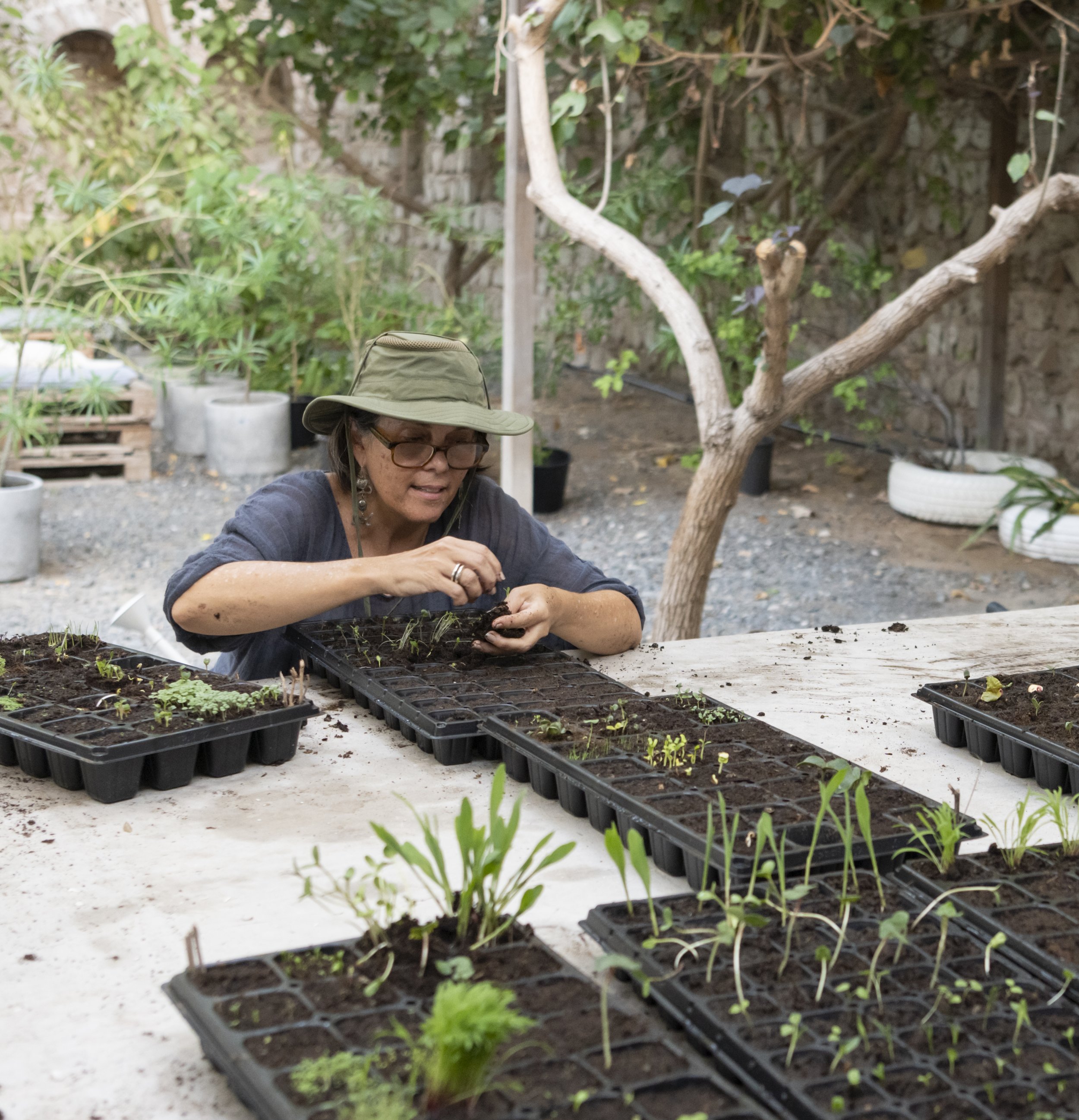
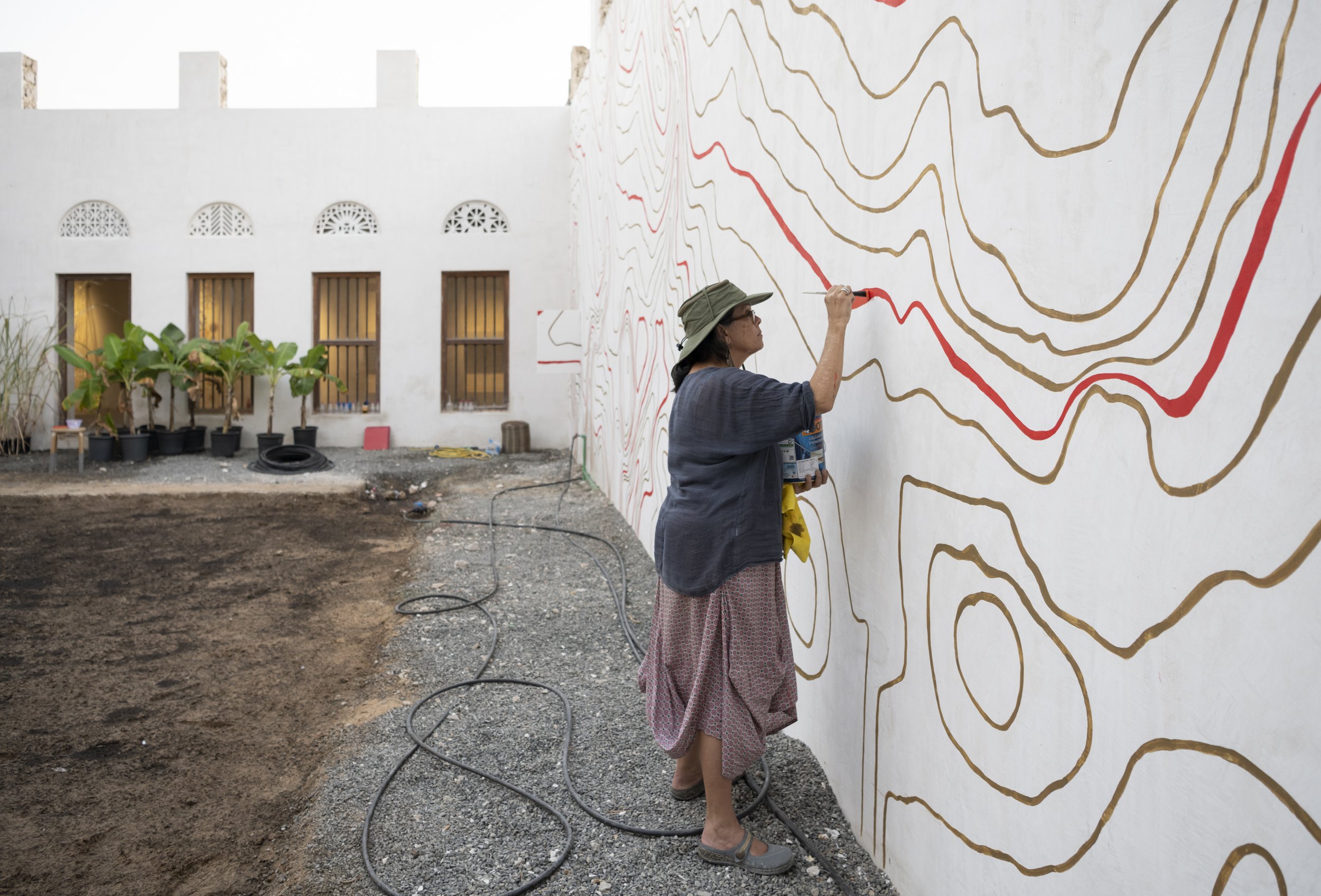
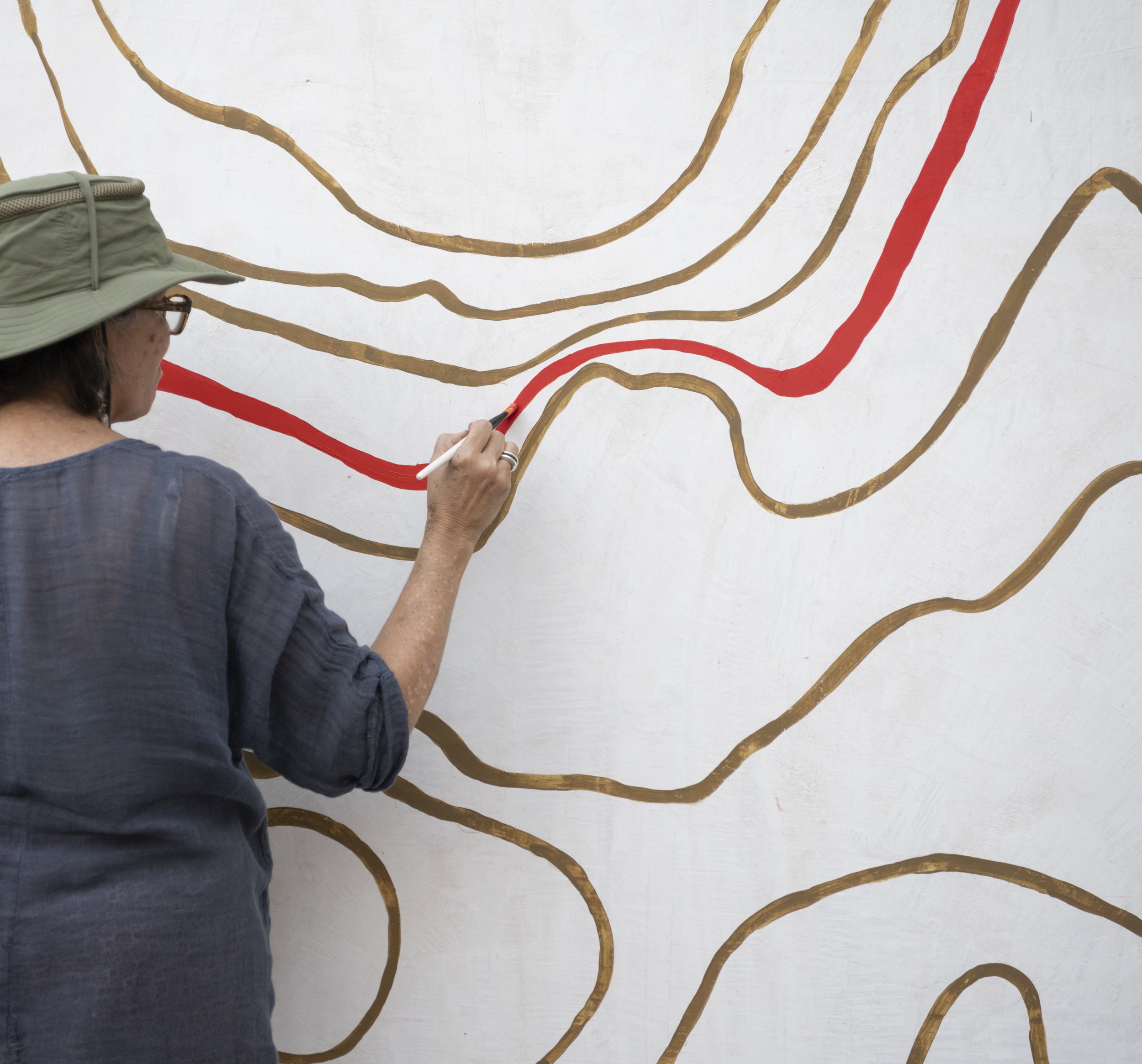
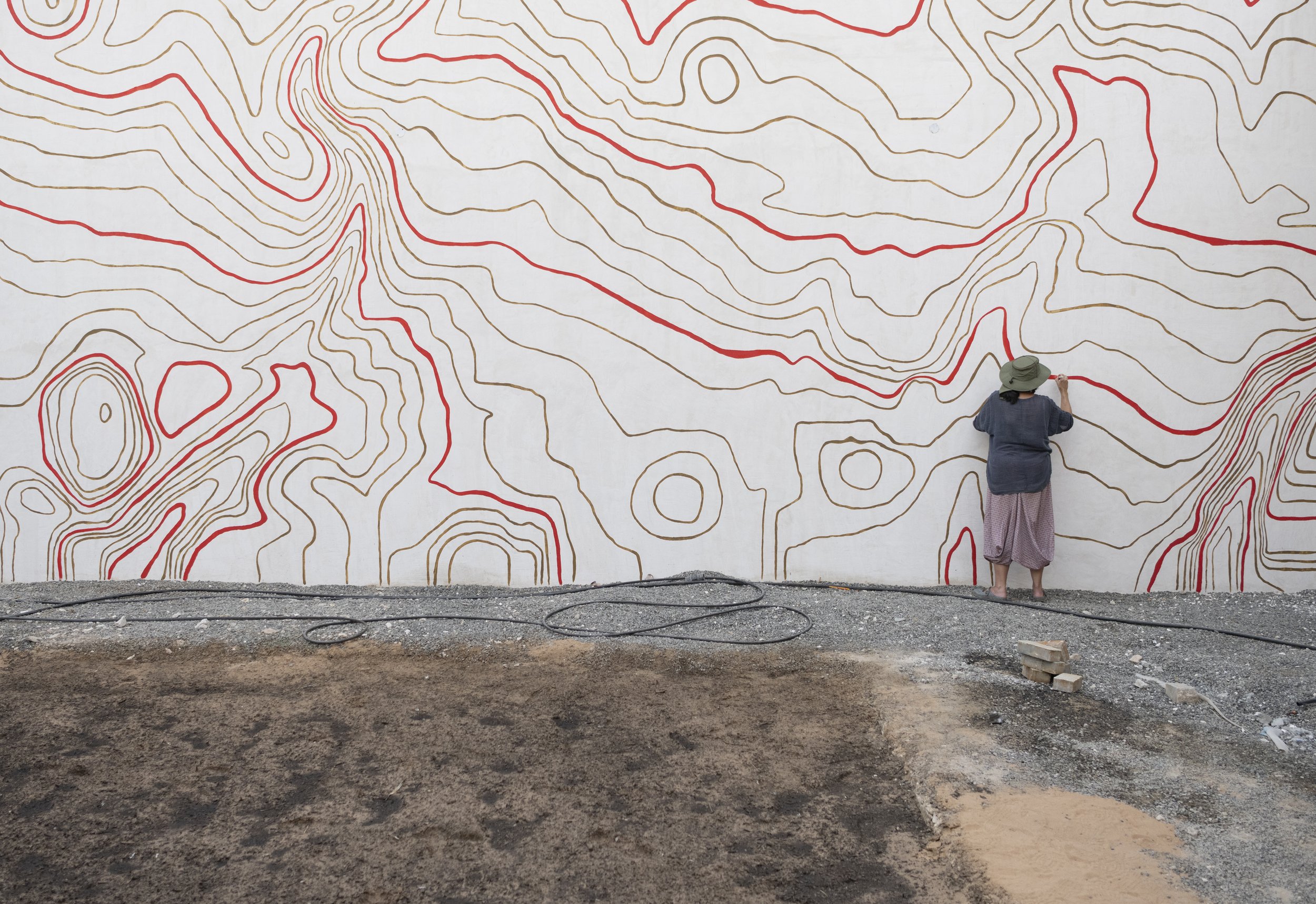
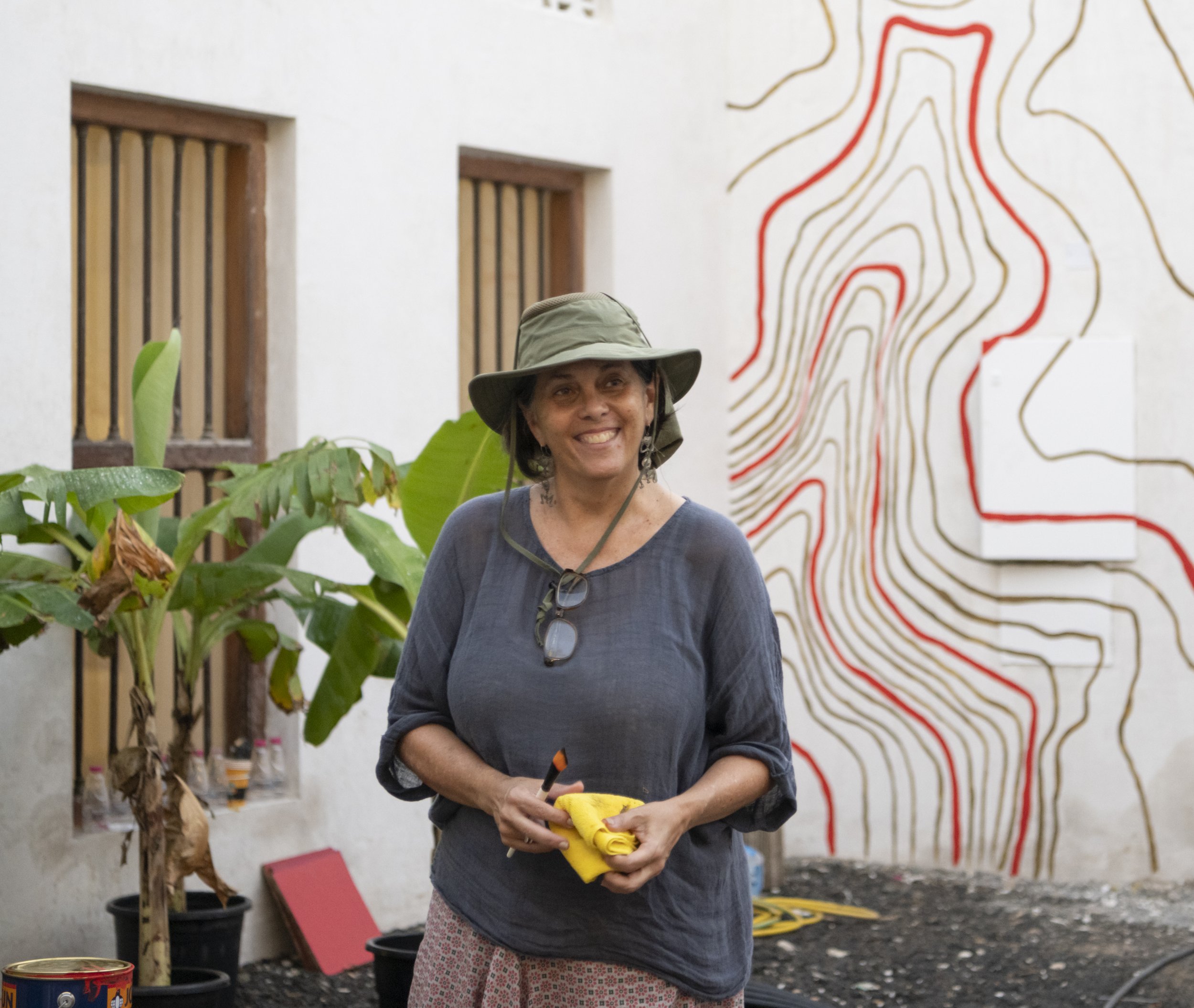
Image courtesy of Sharjah Art Foundation
Photo: Shanavas Jamaluddin

